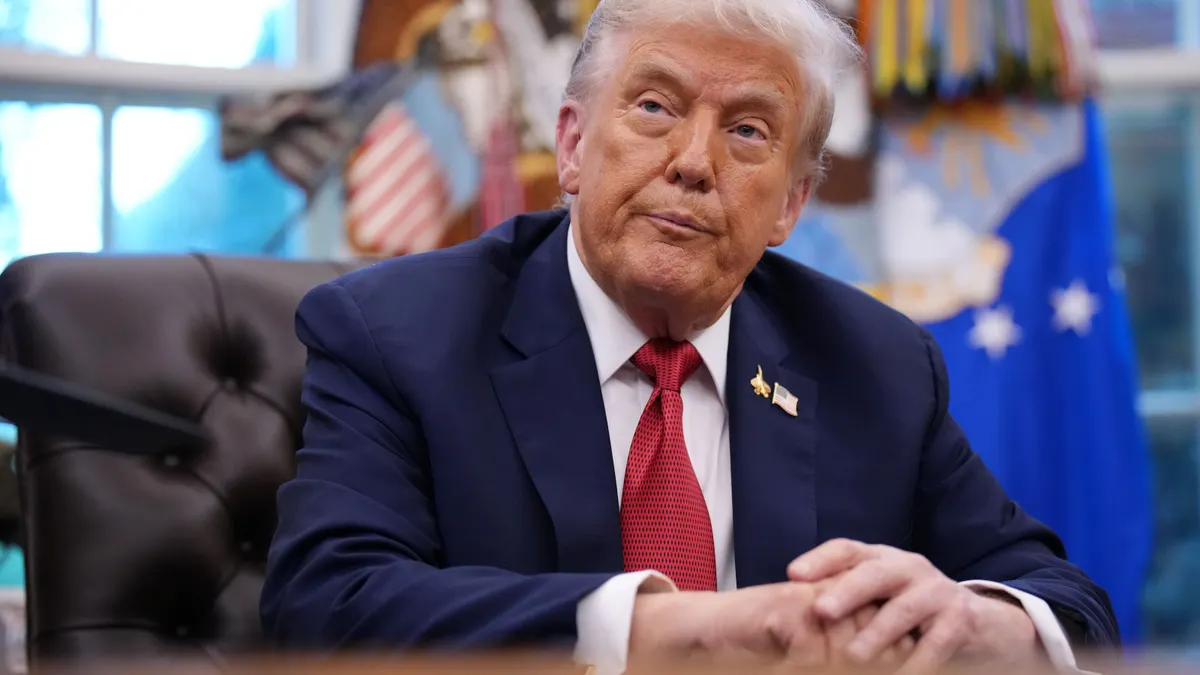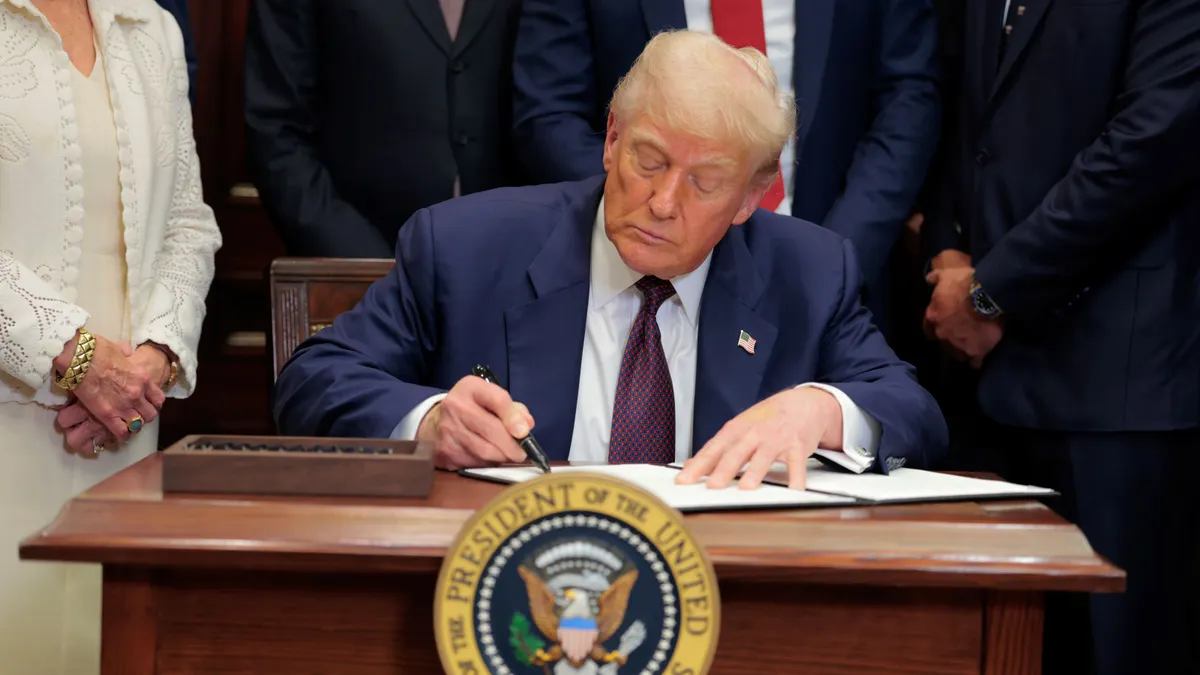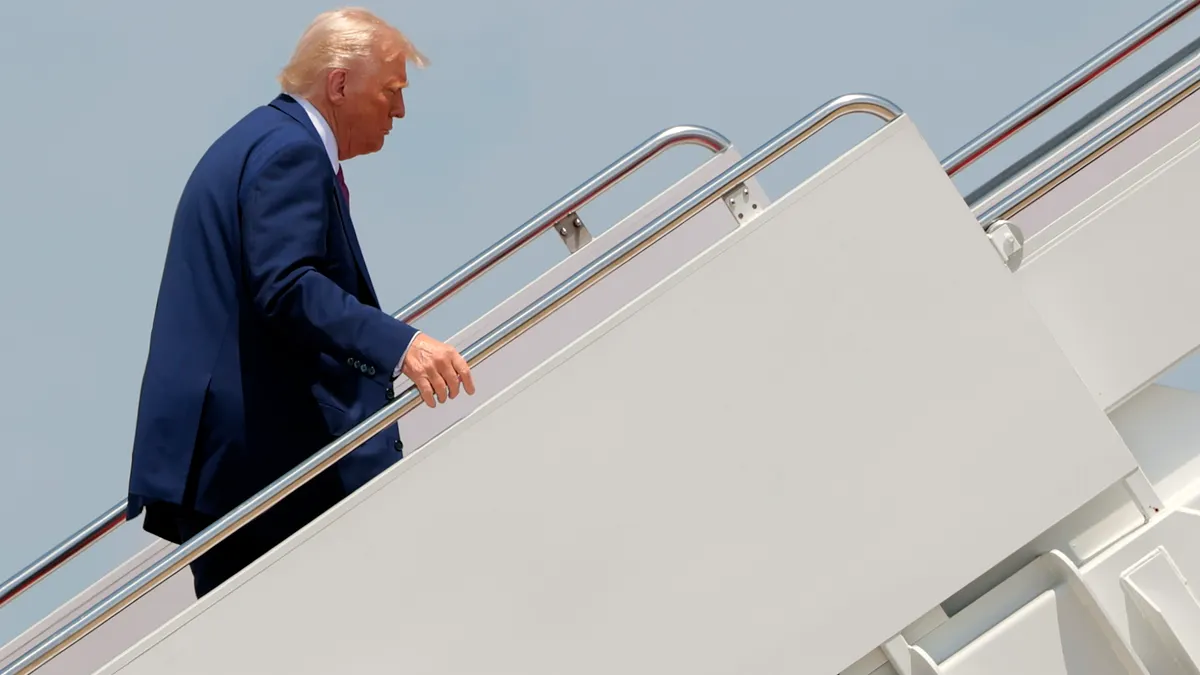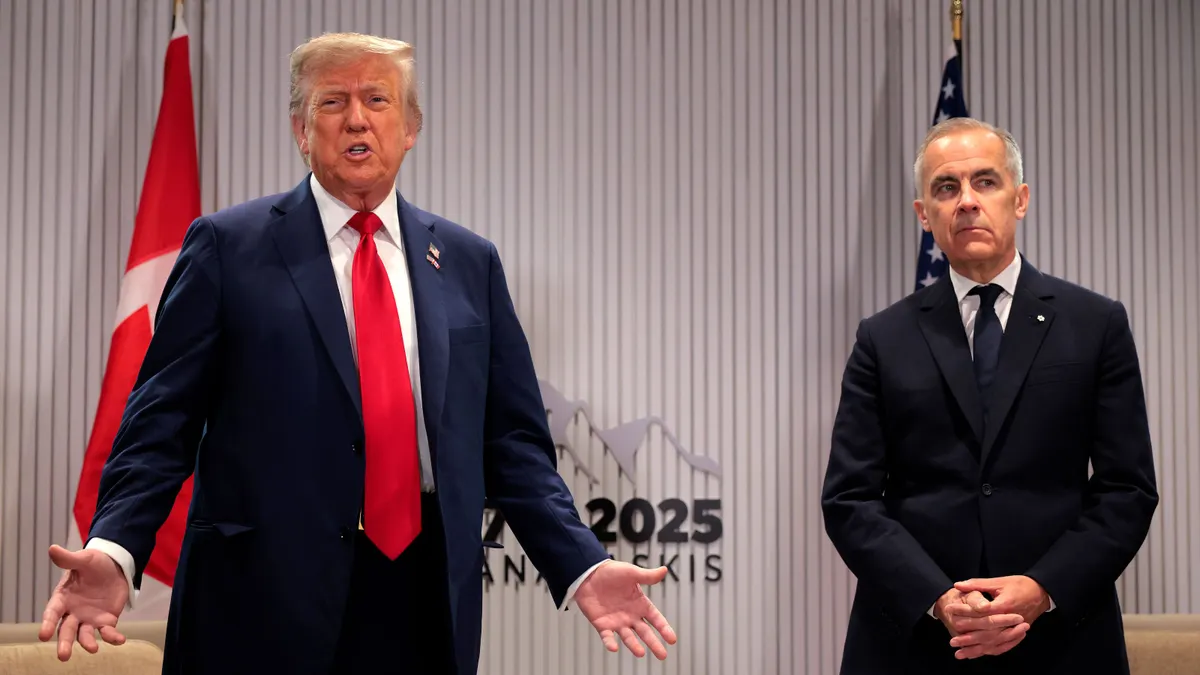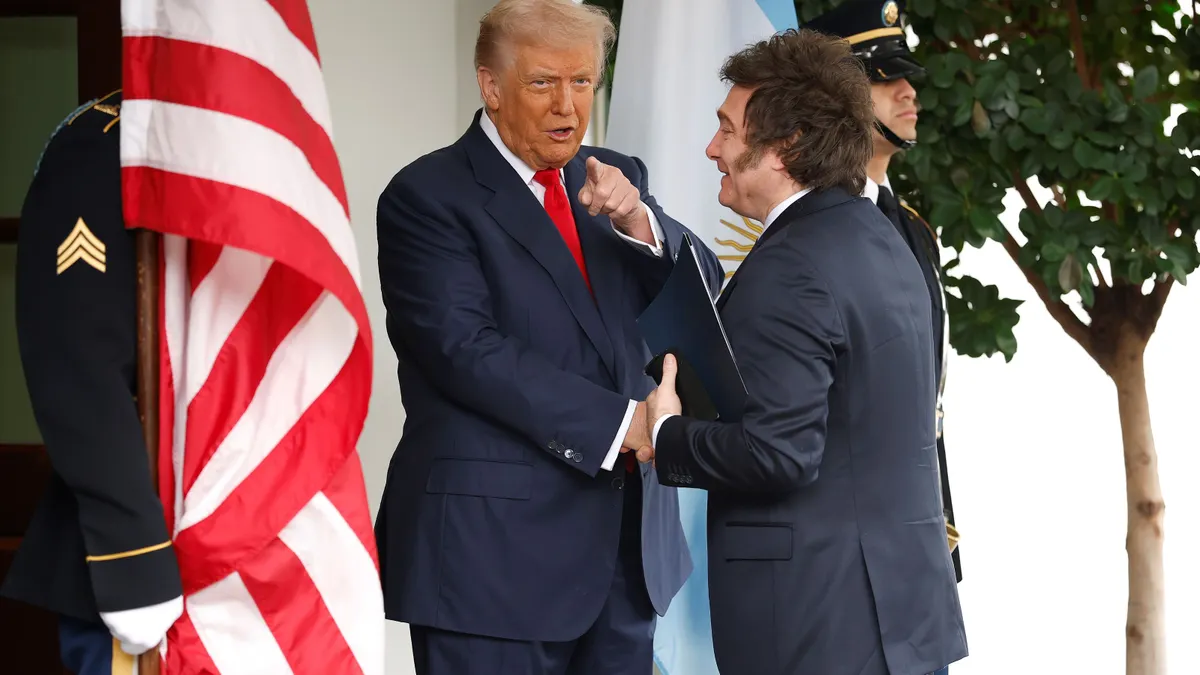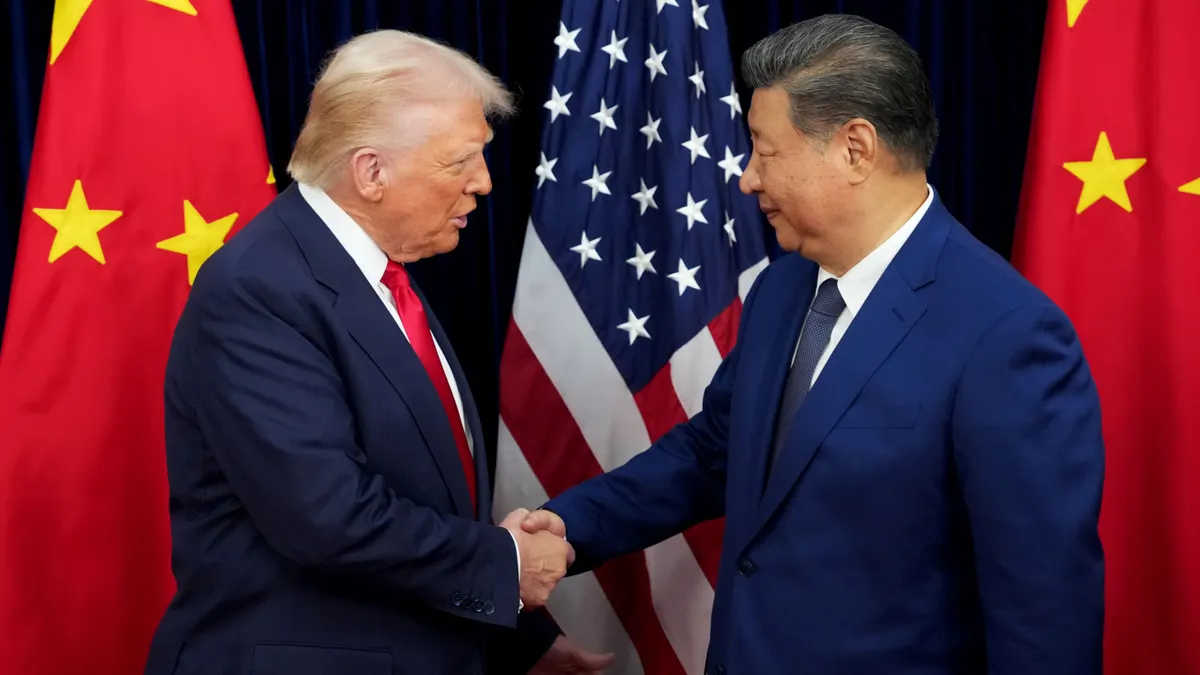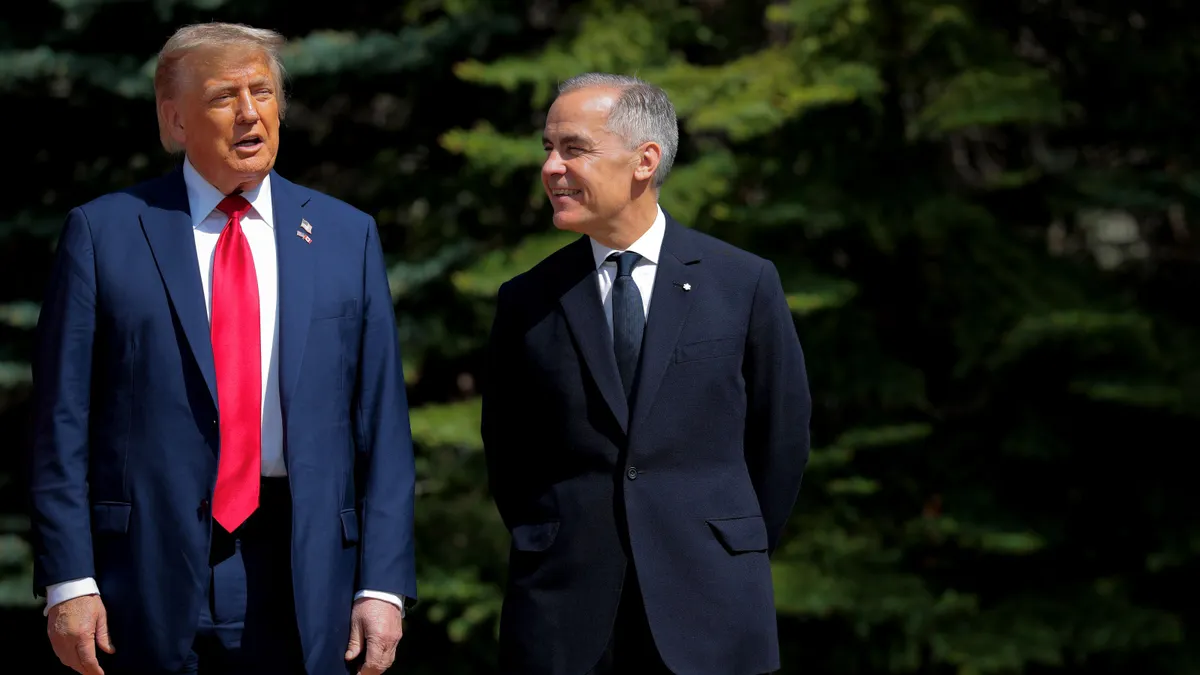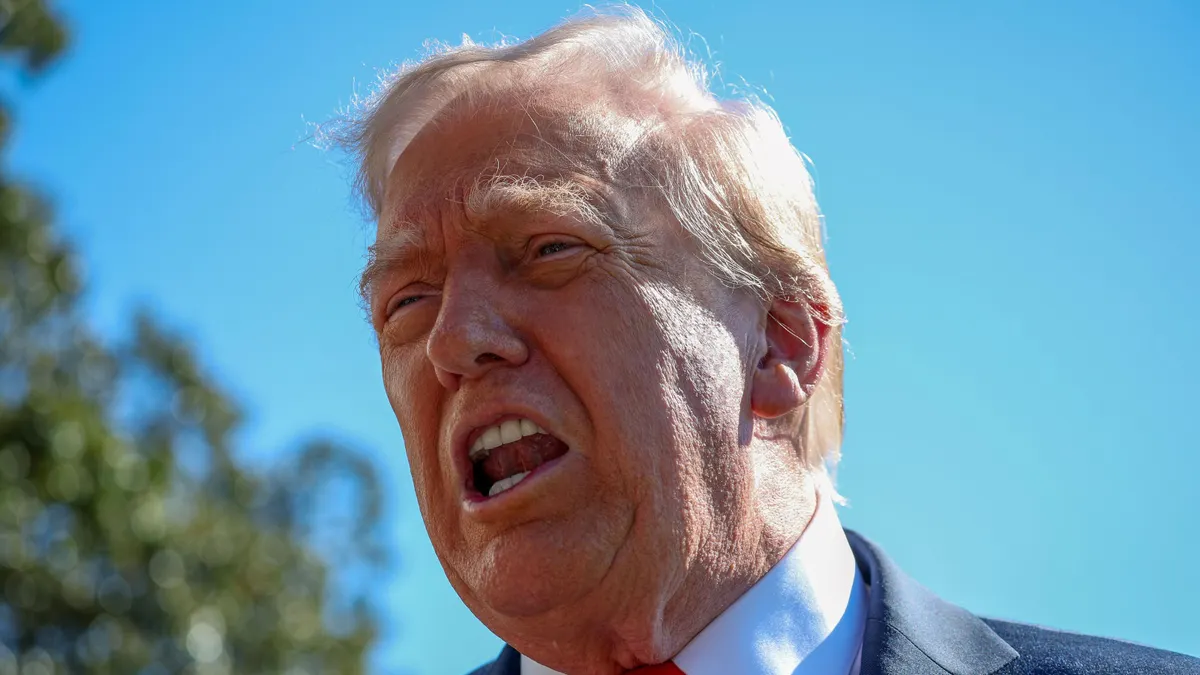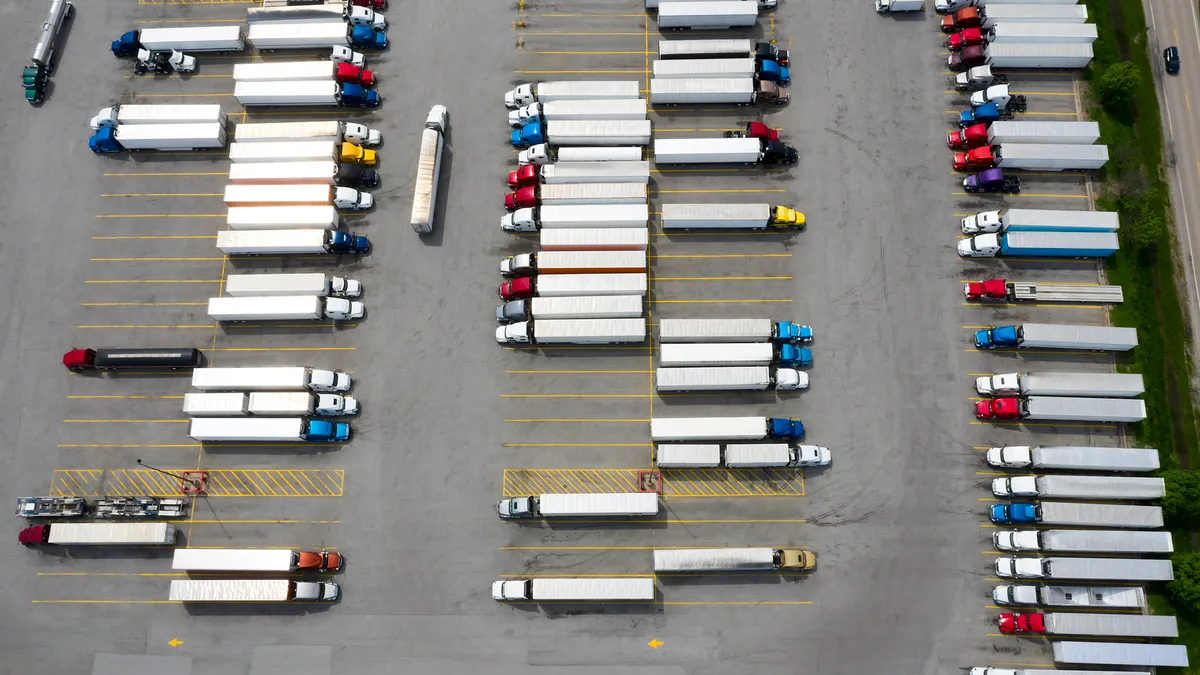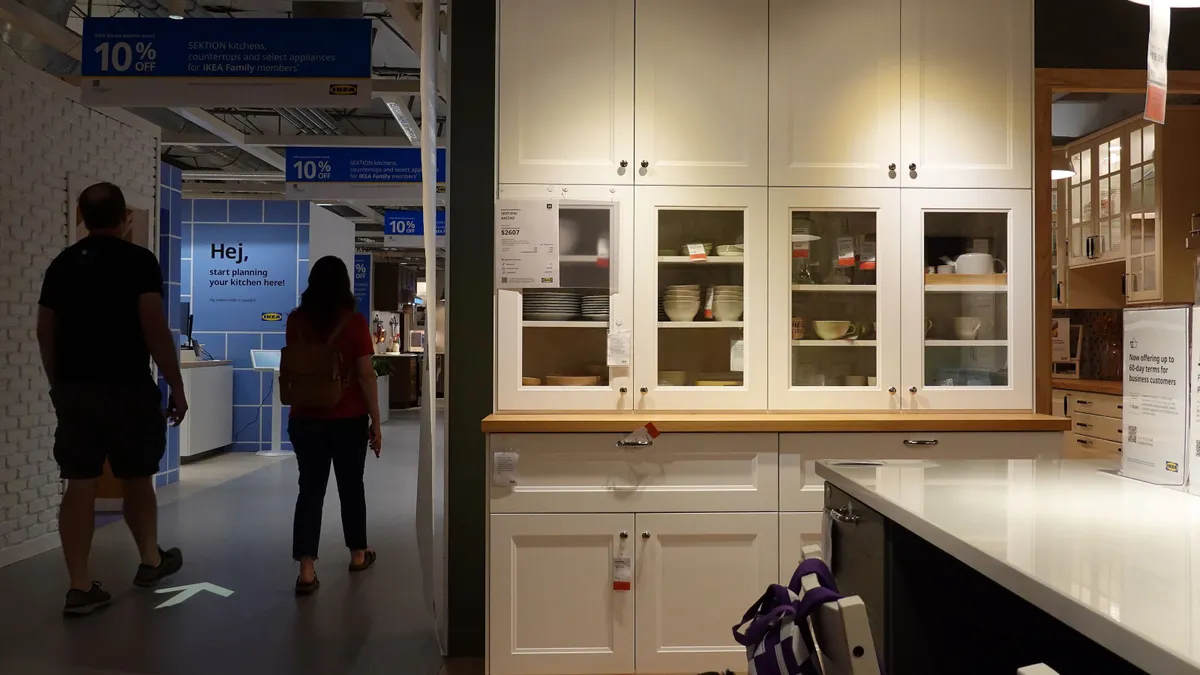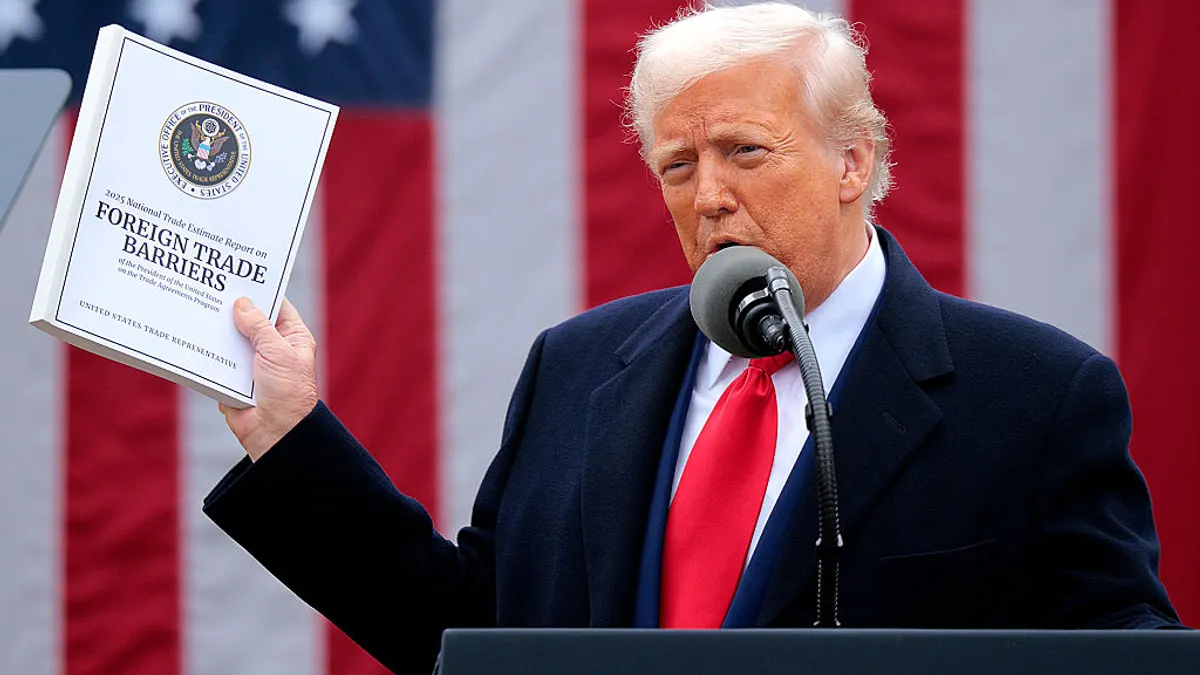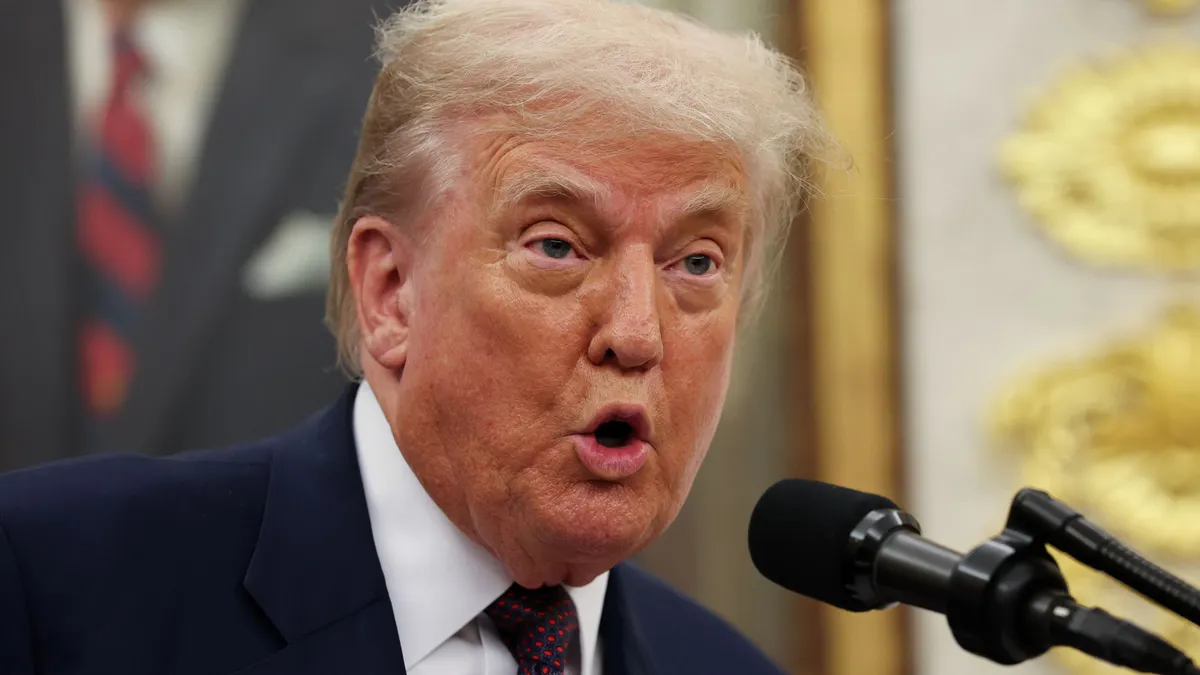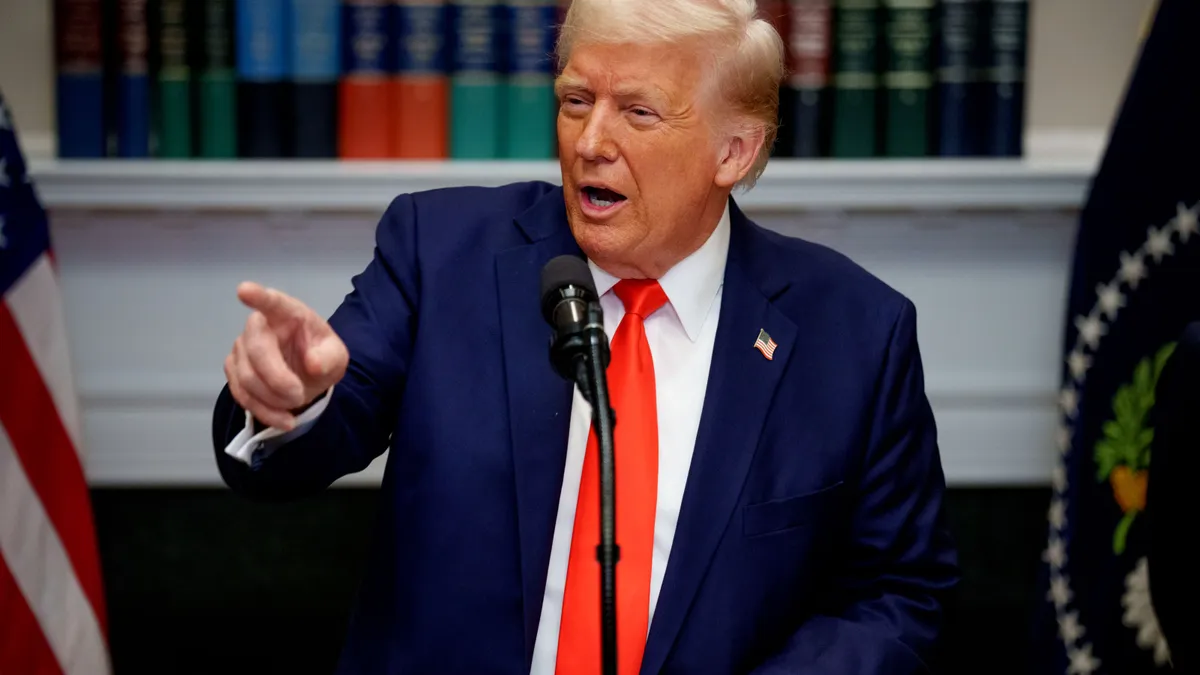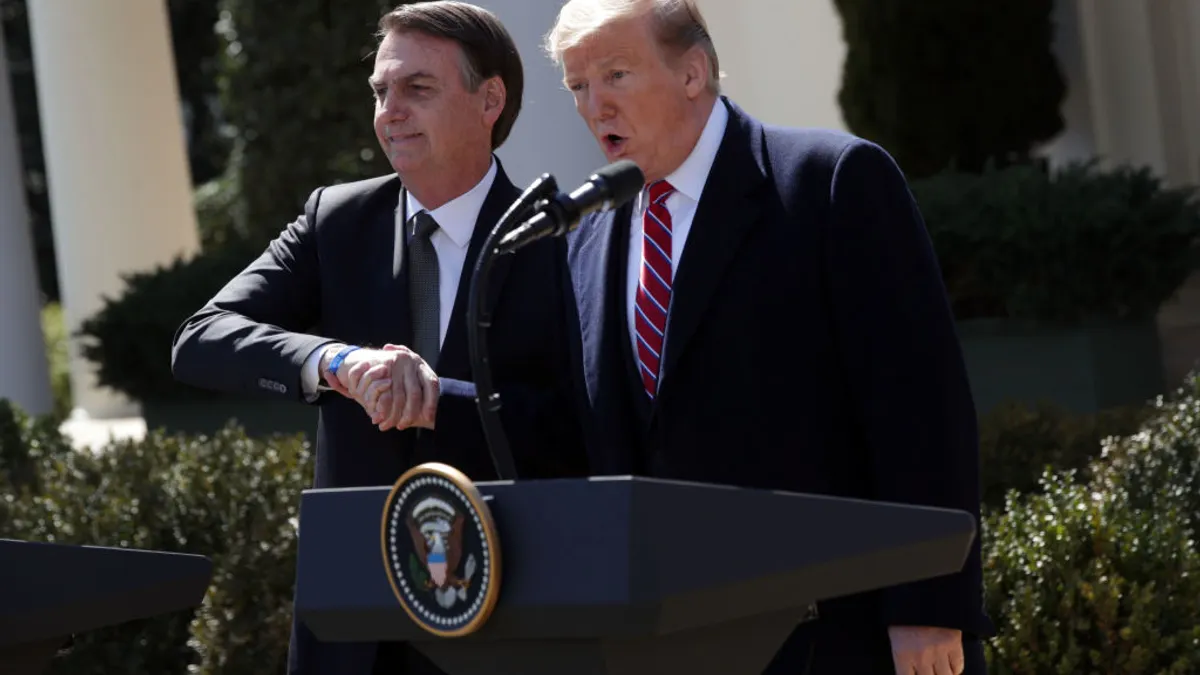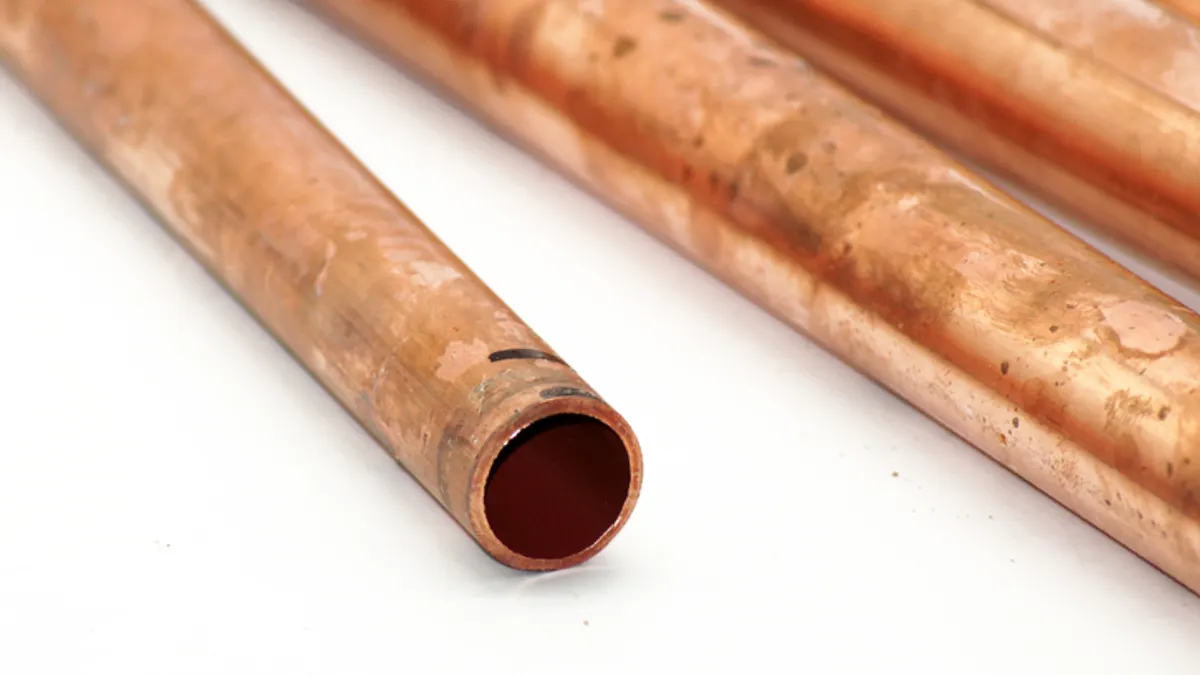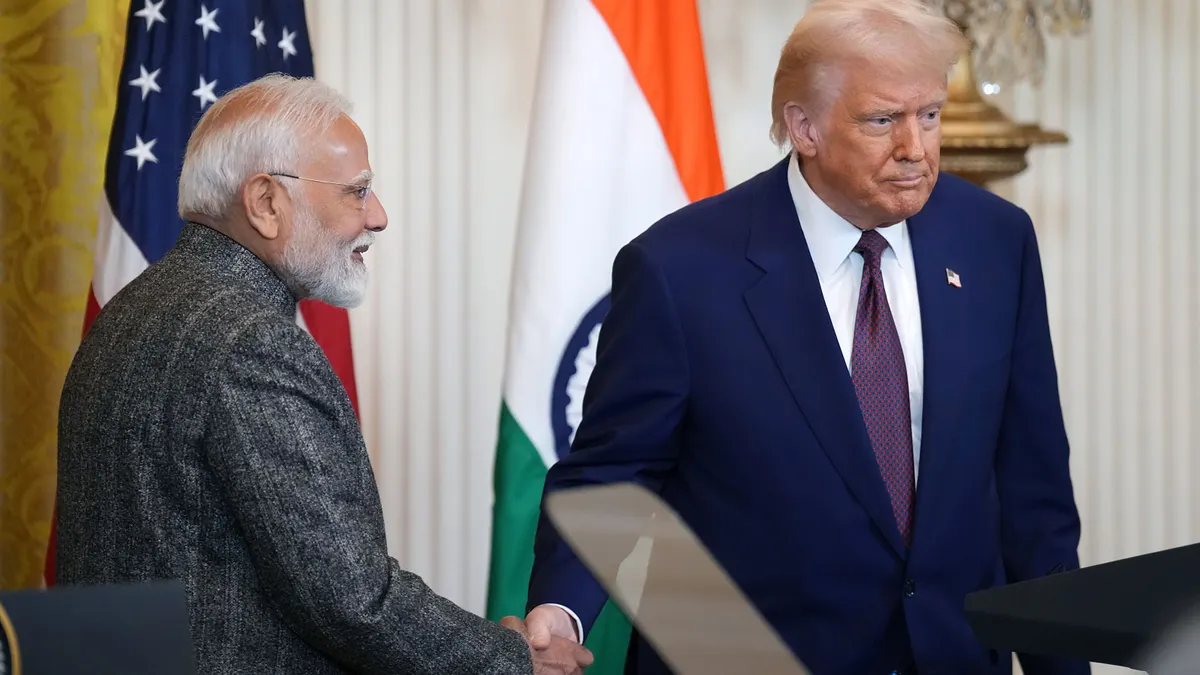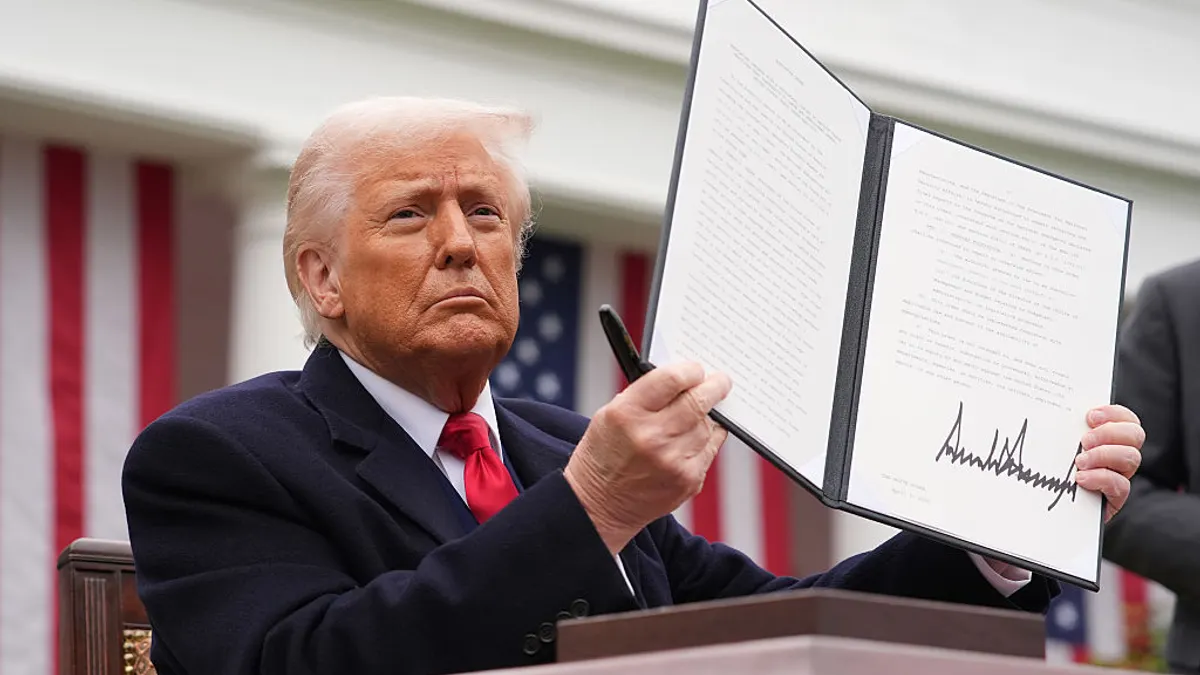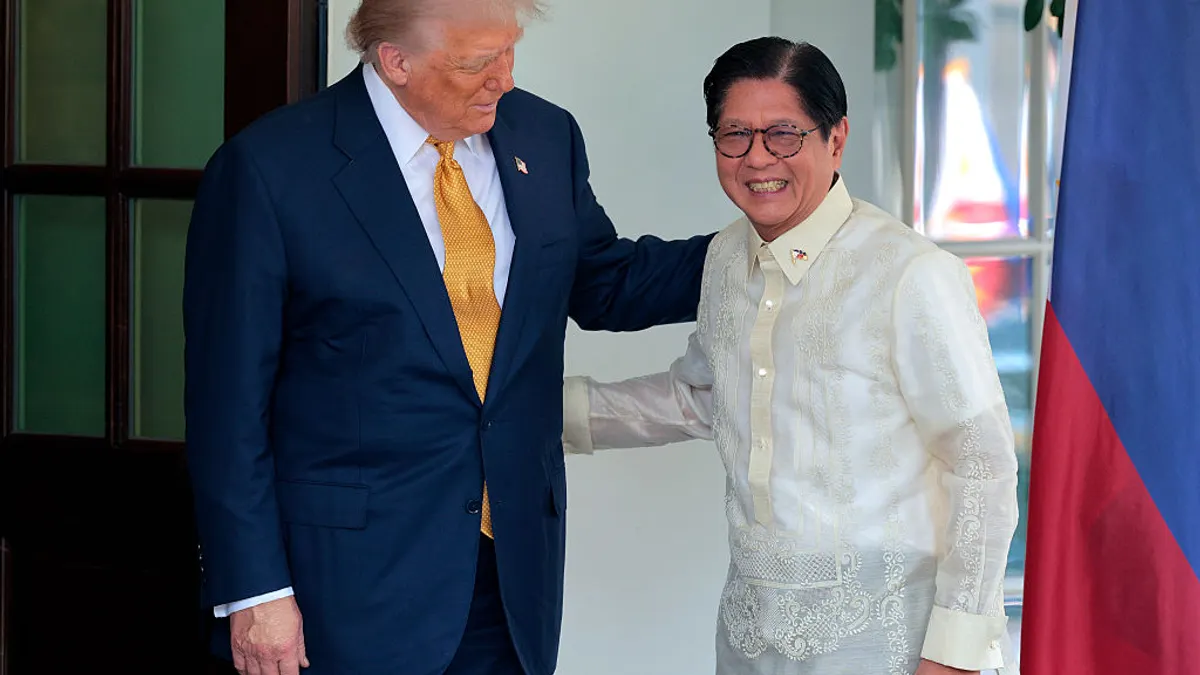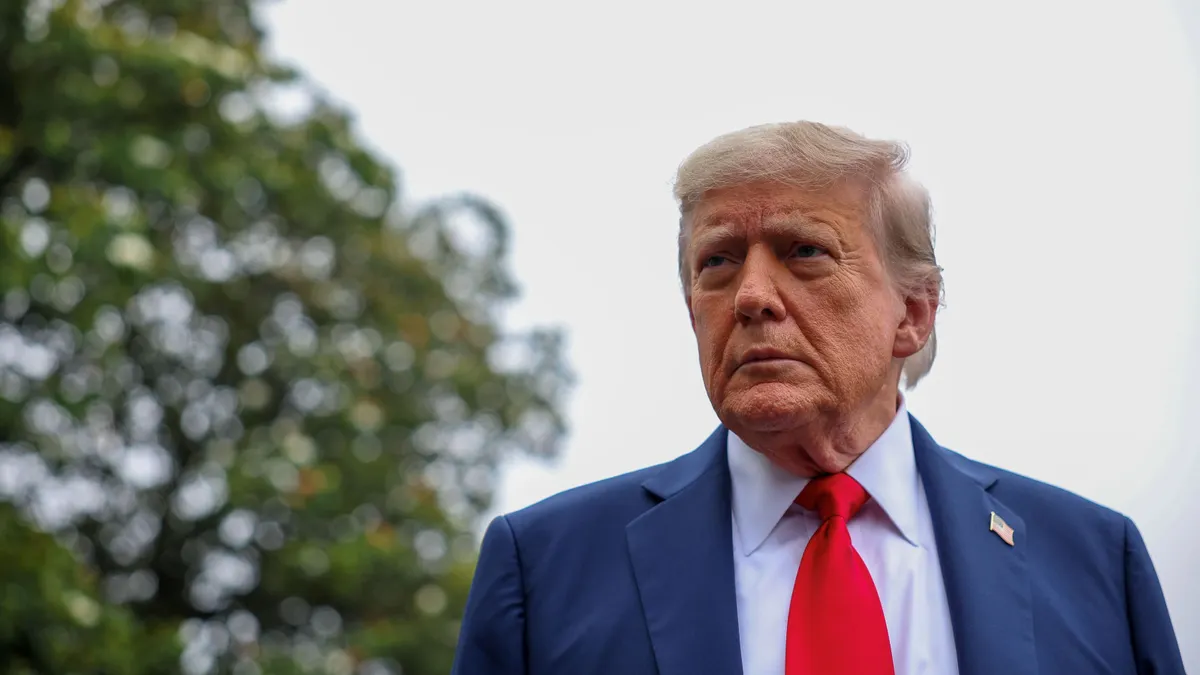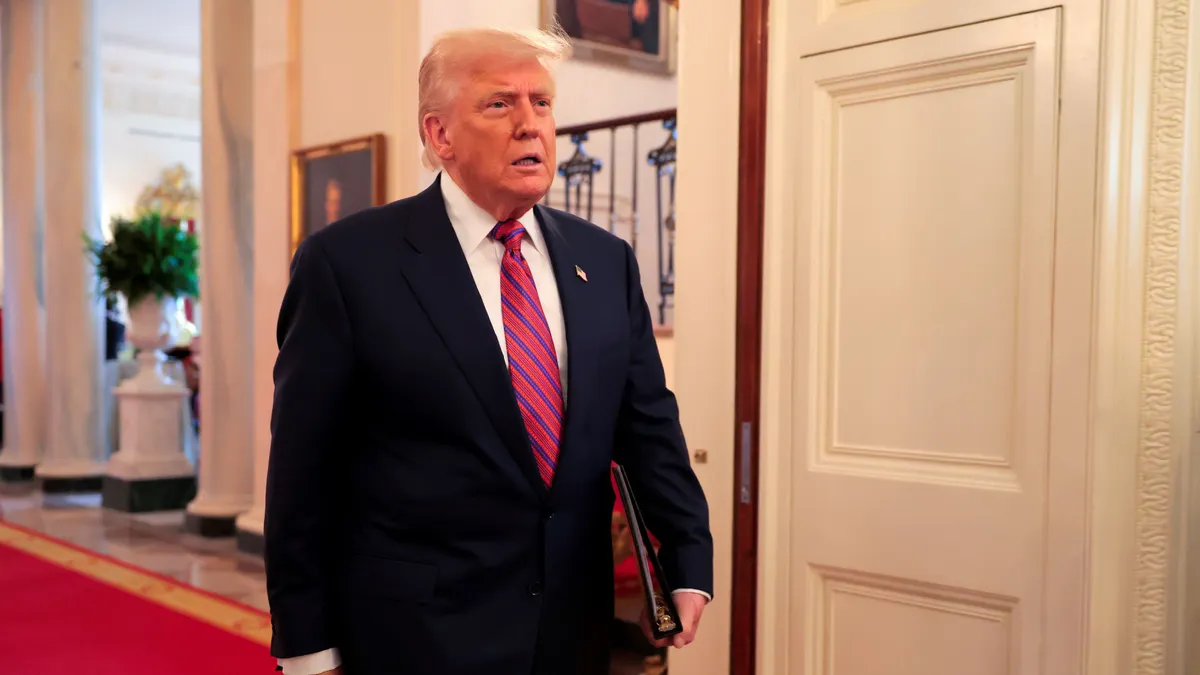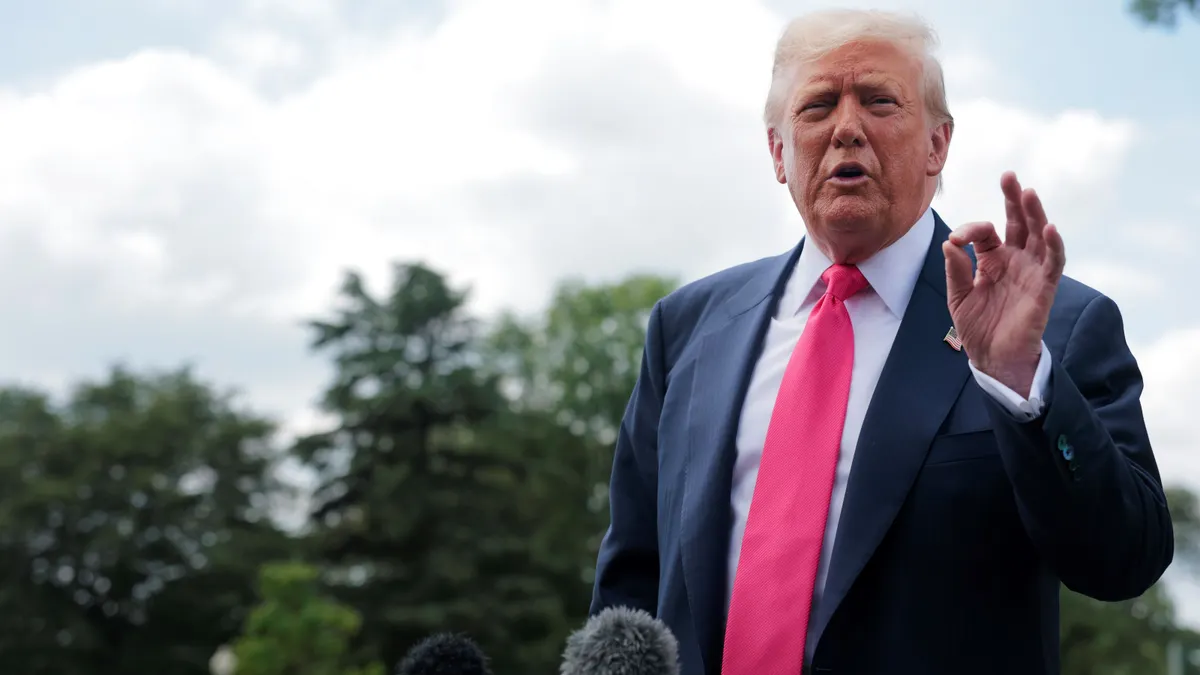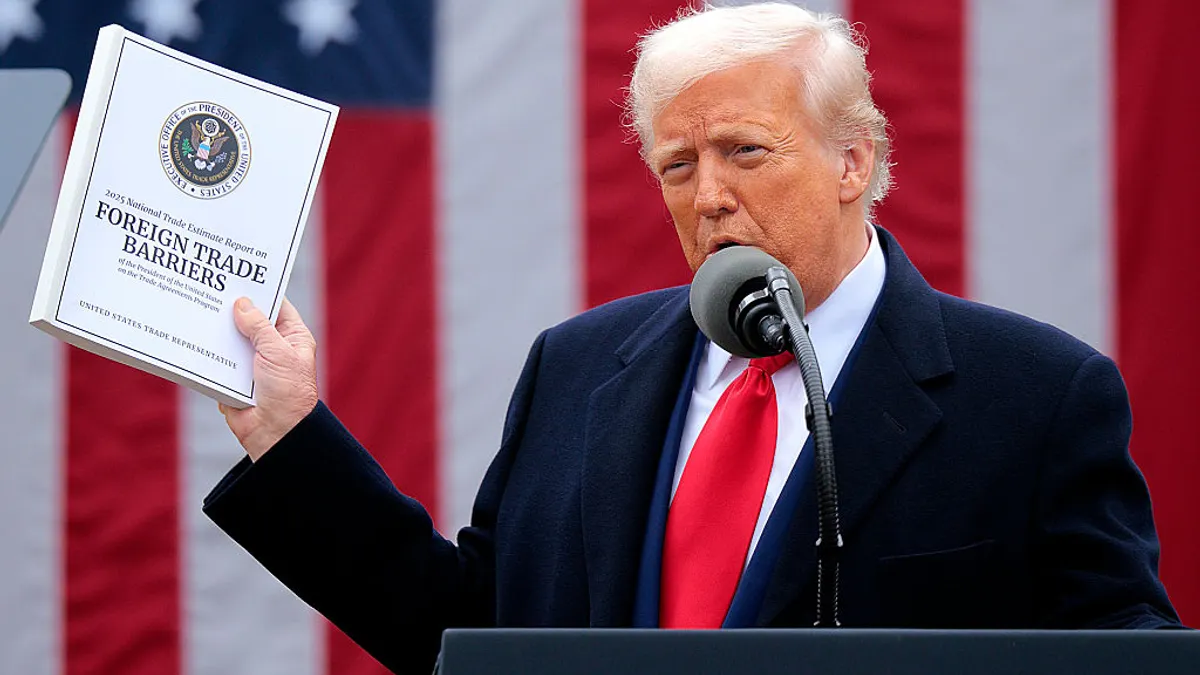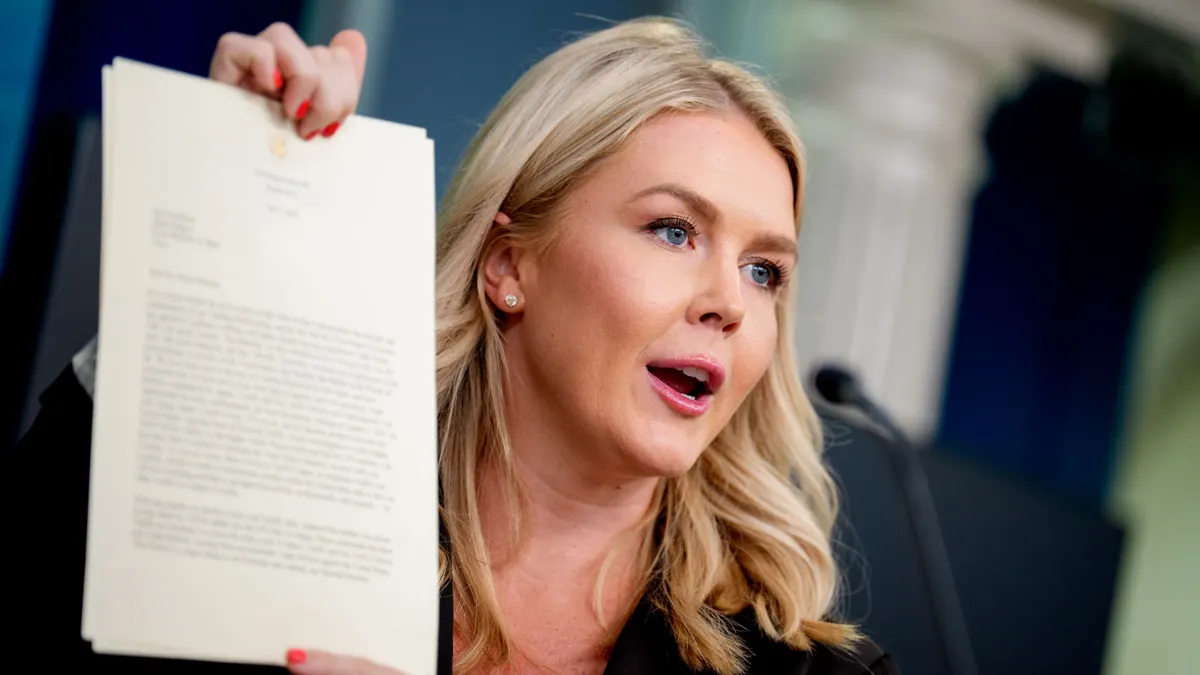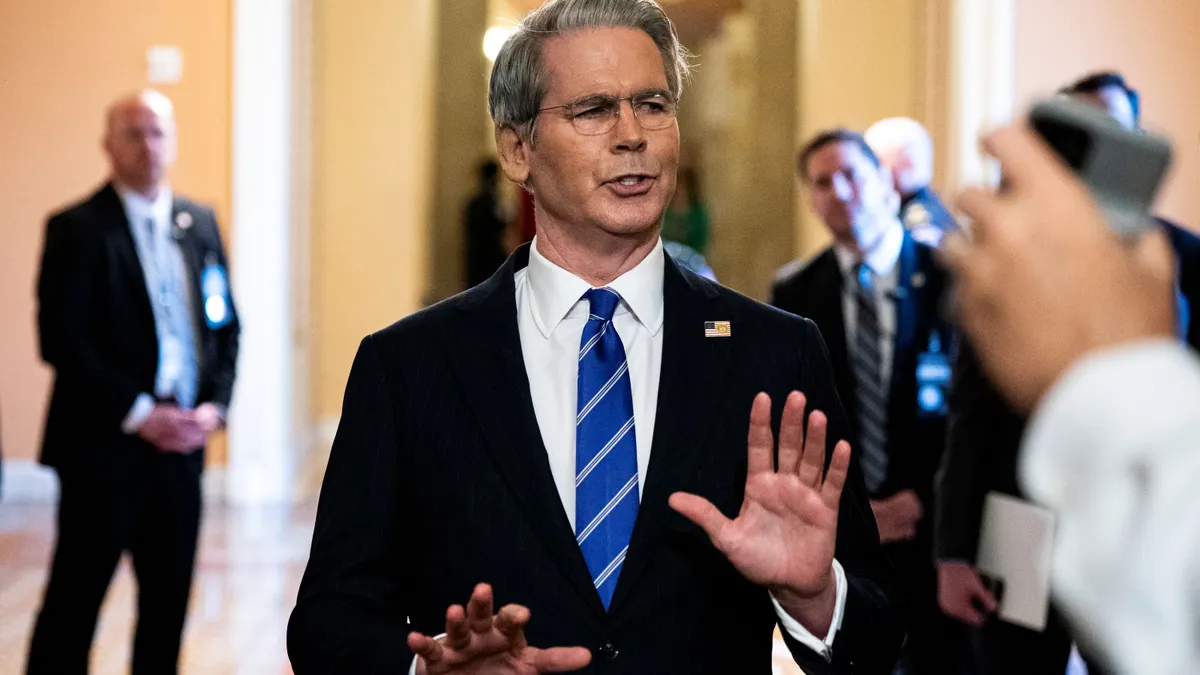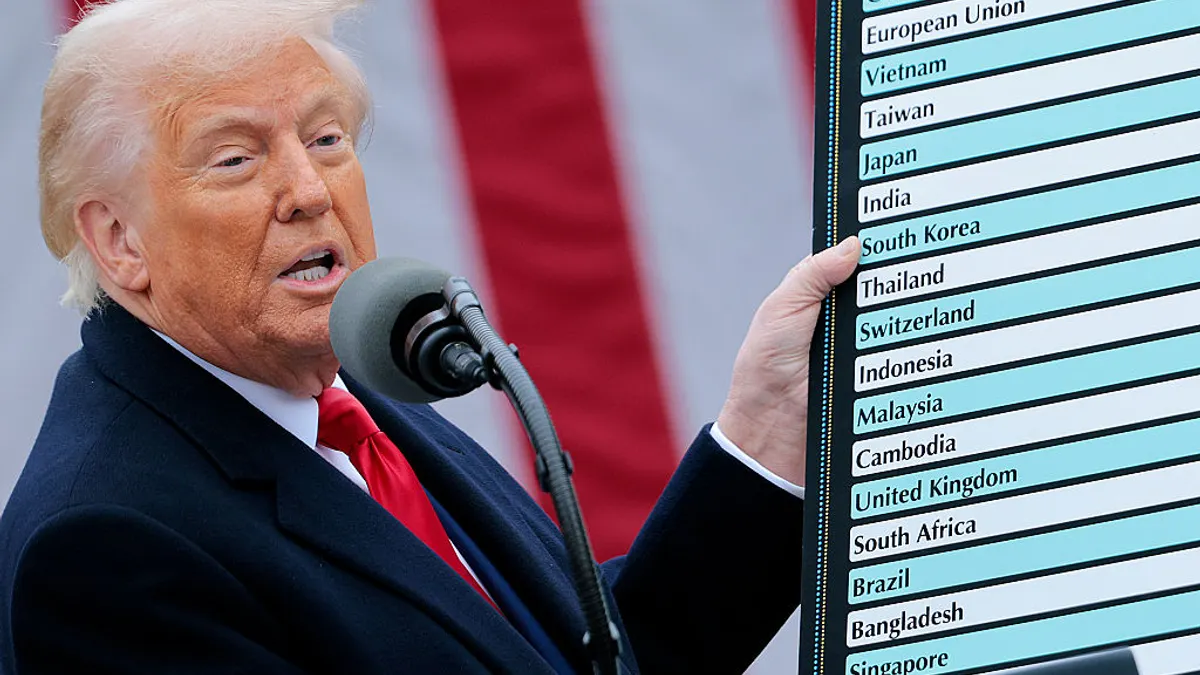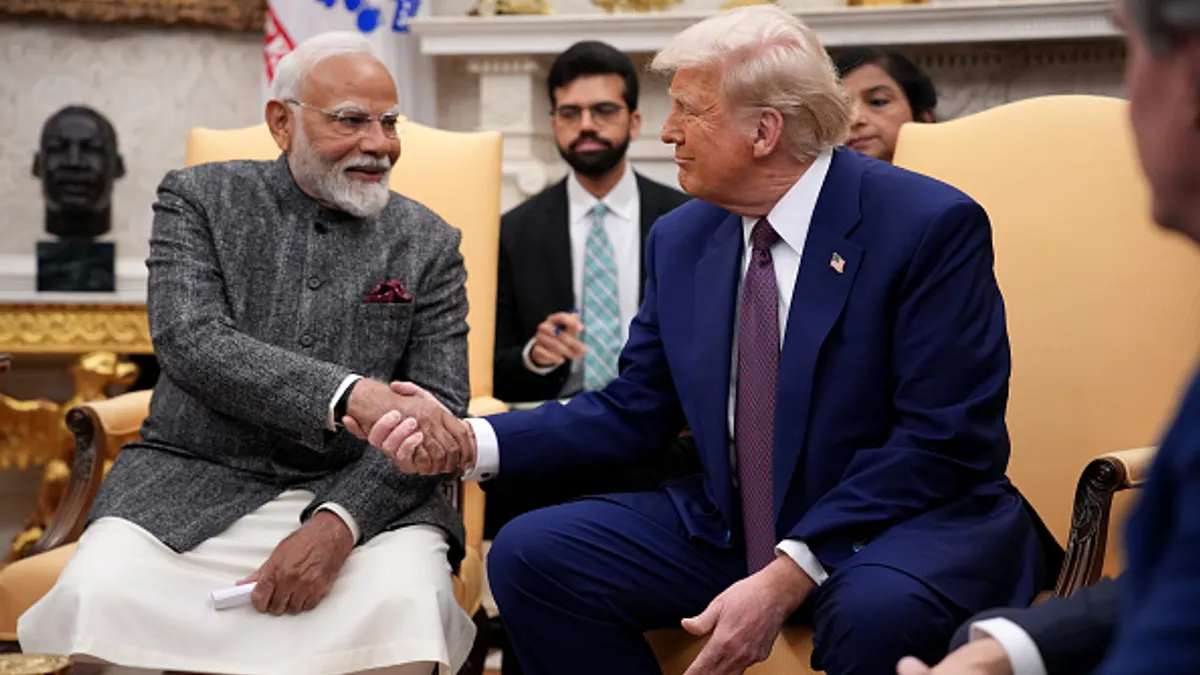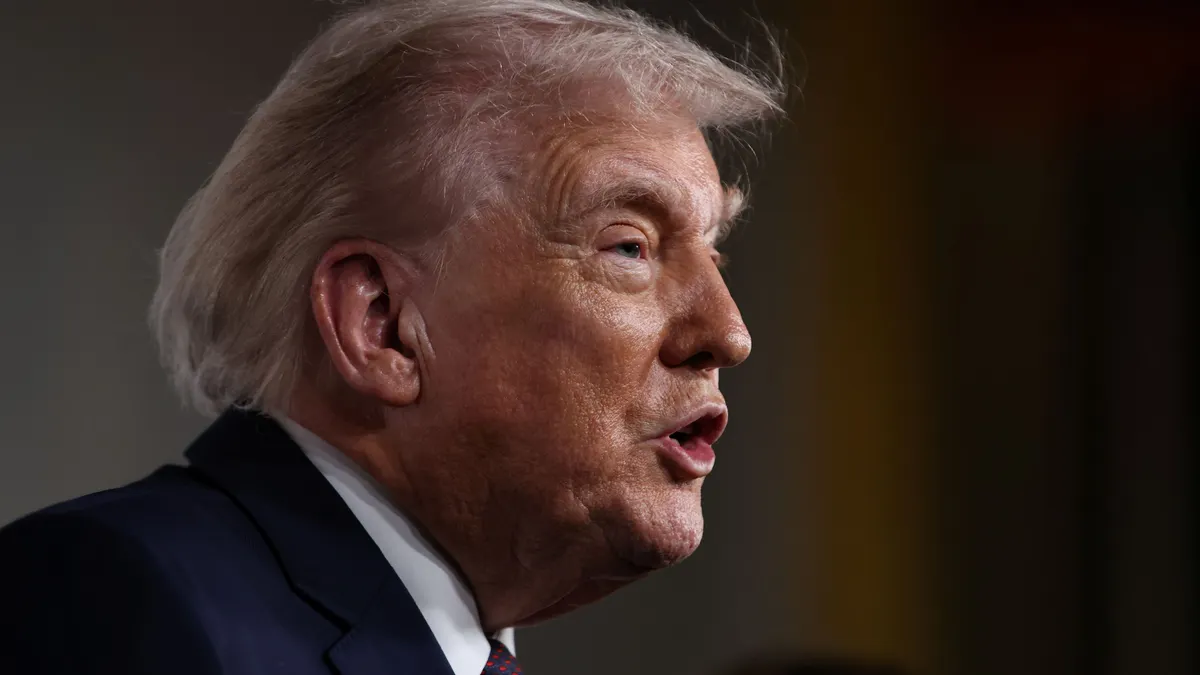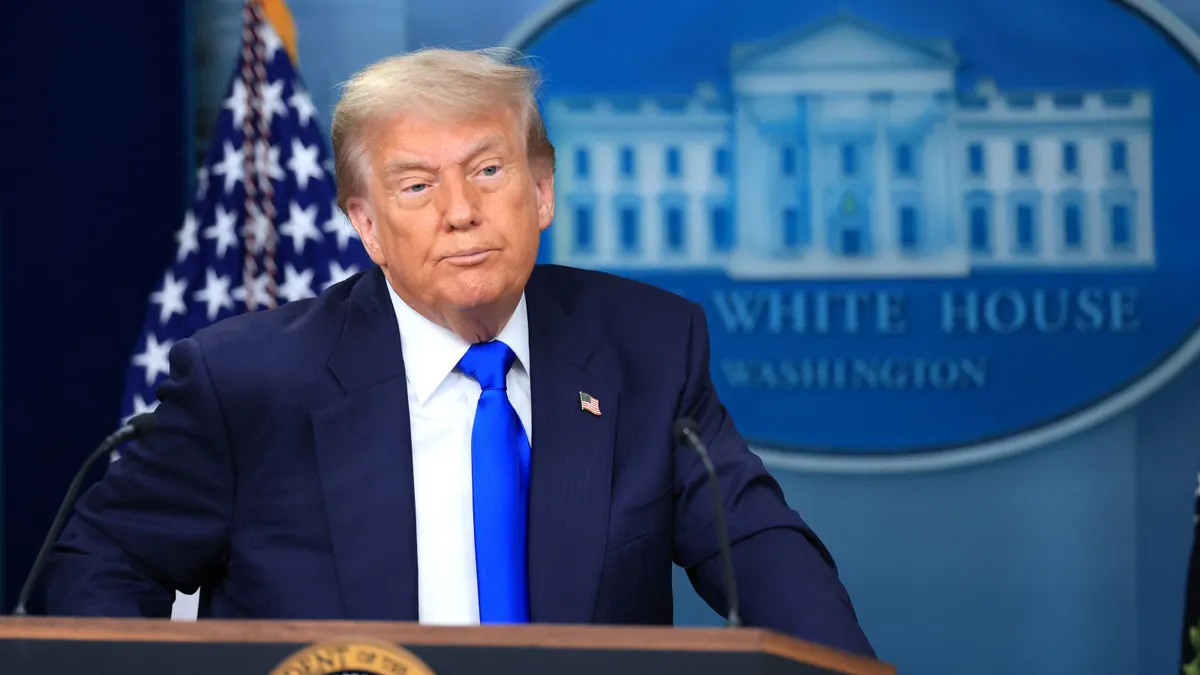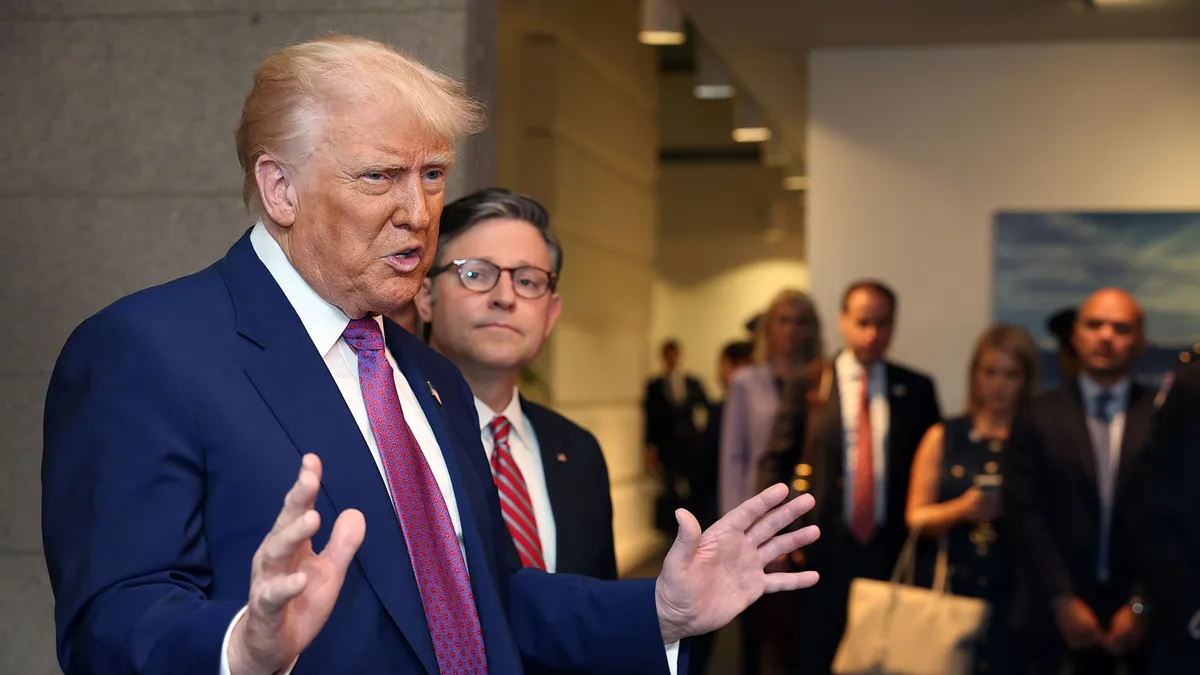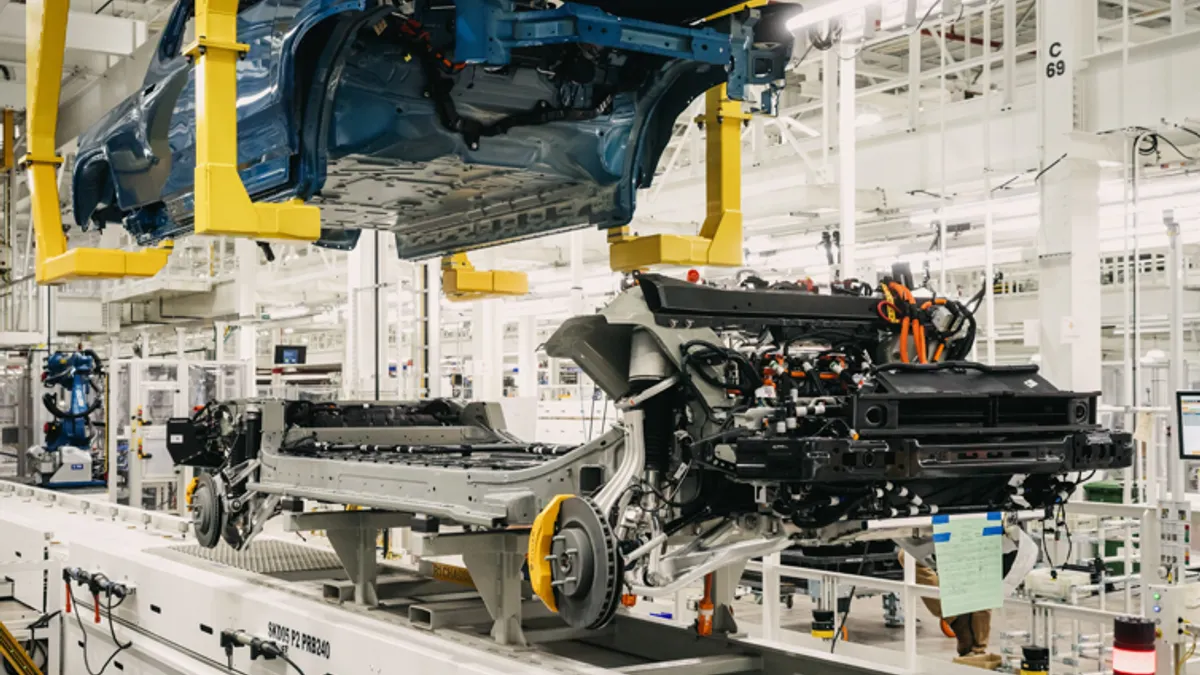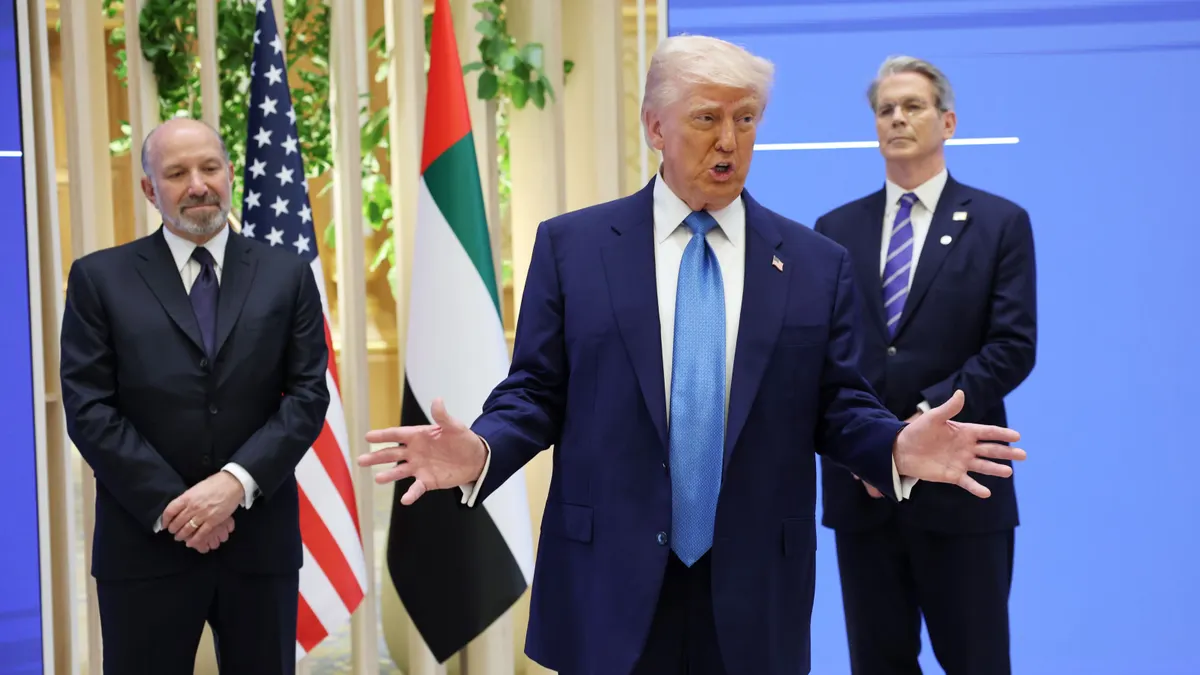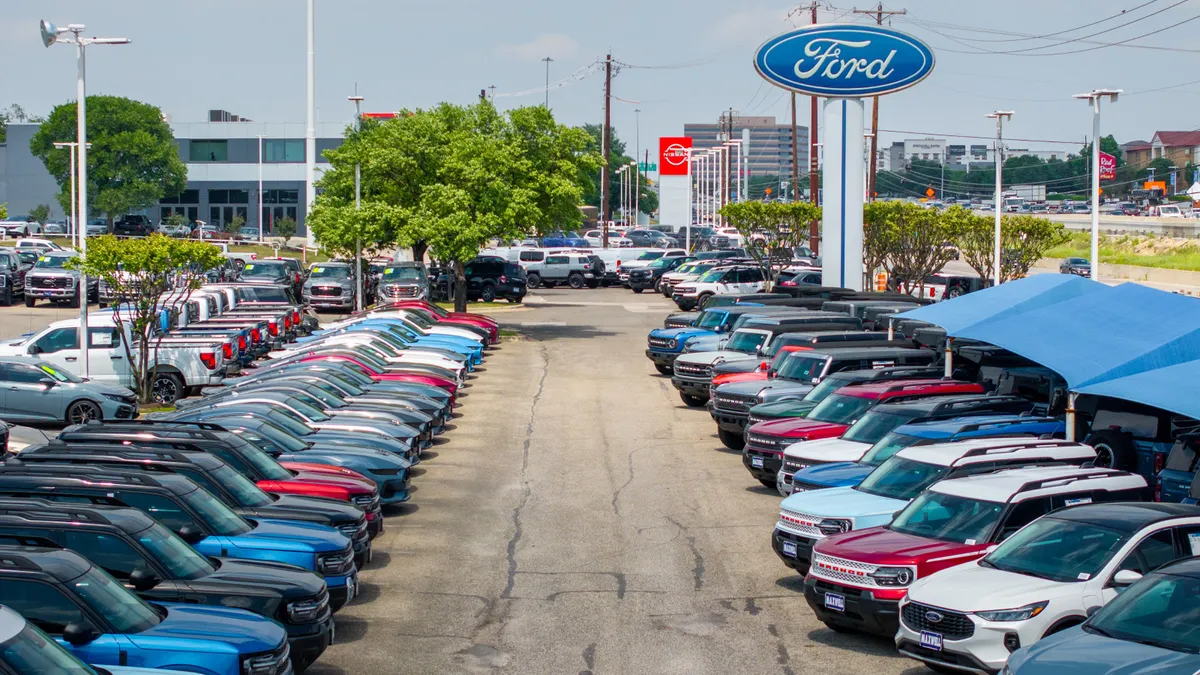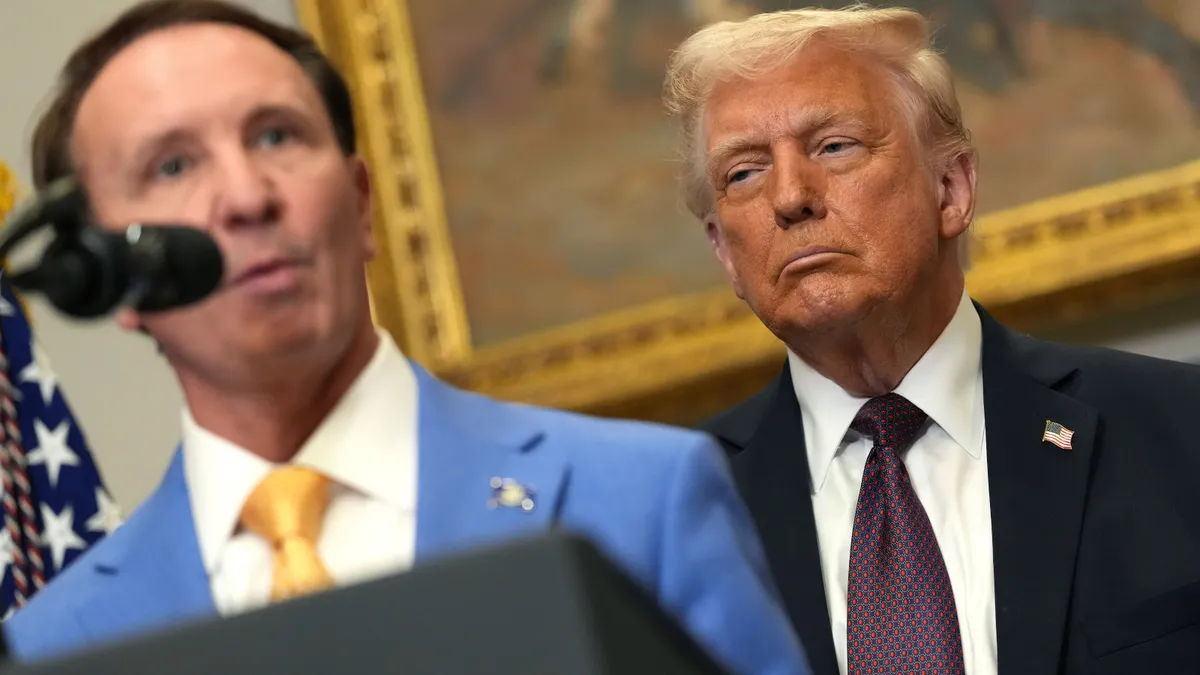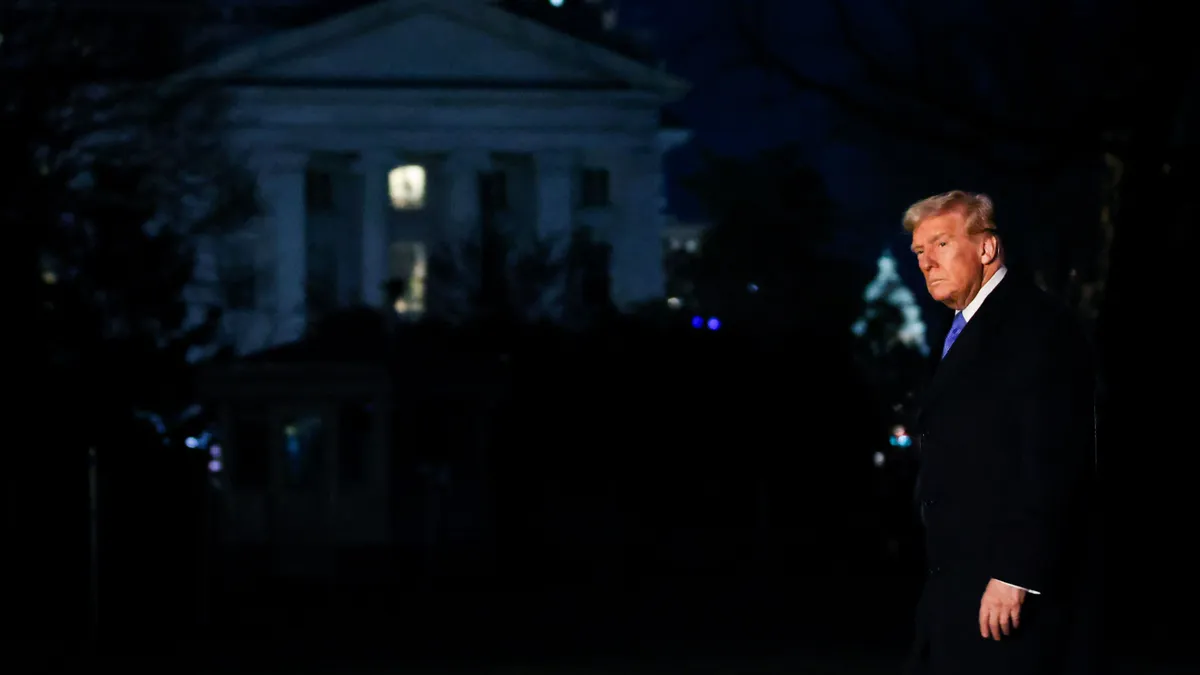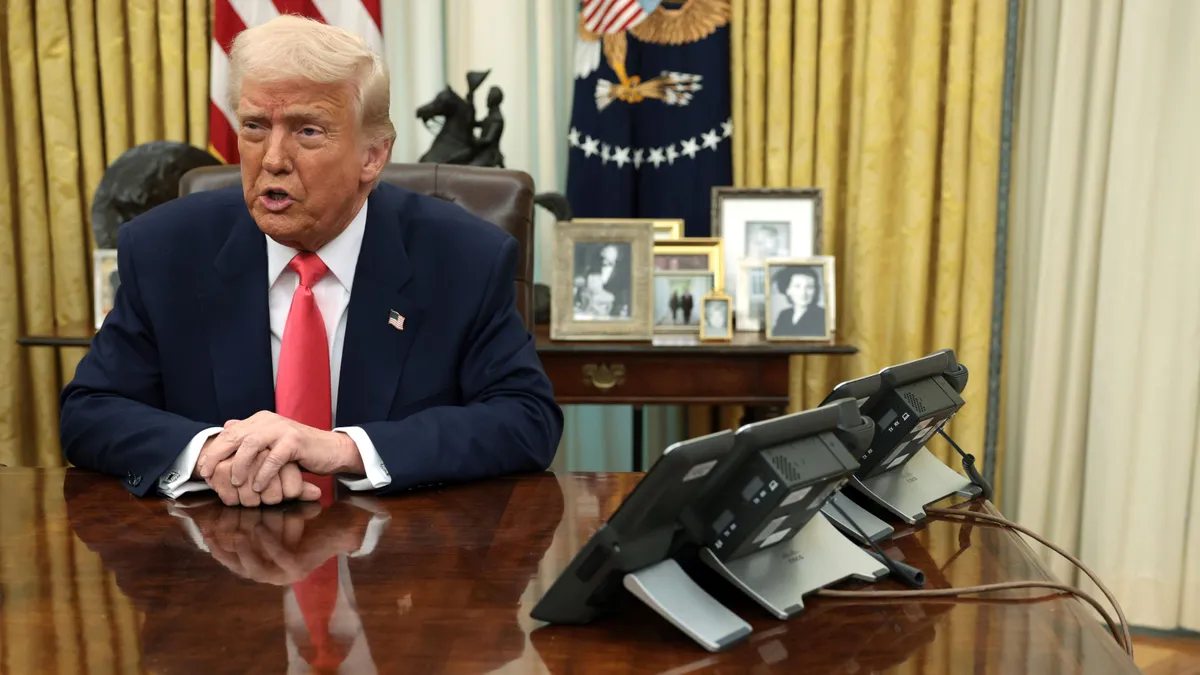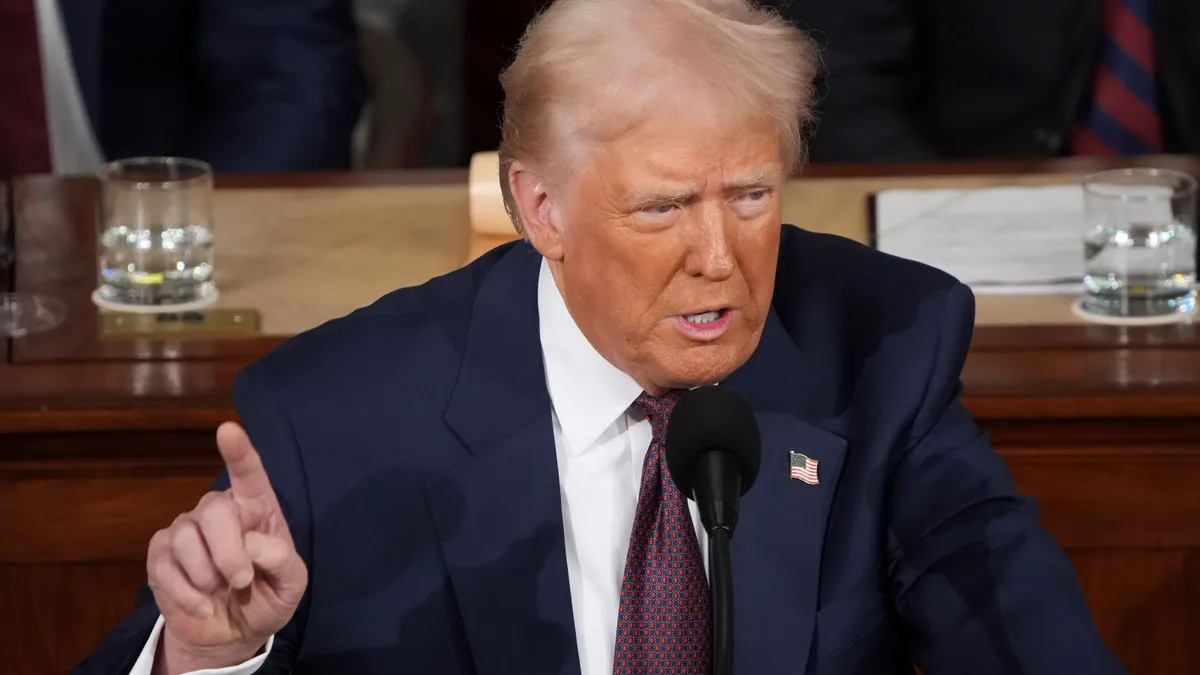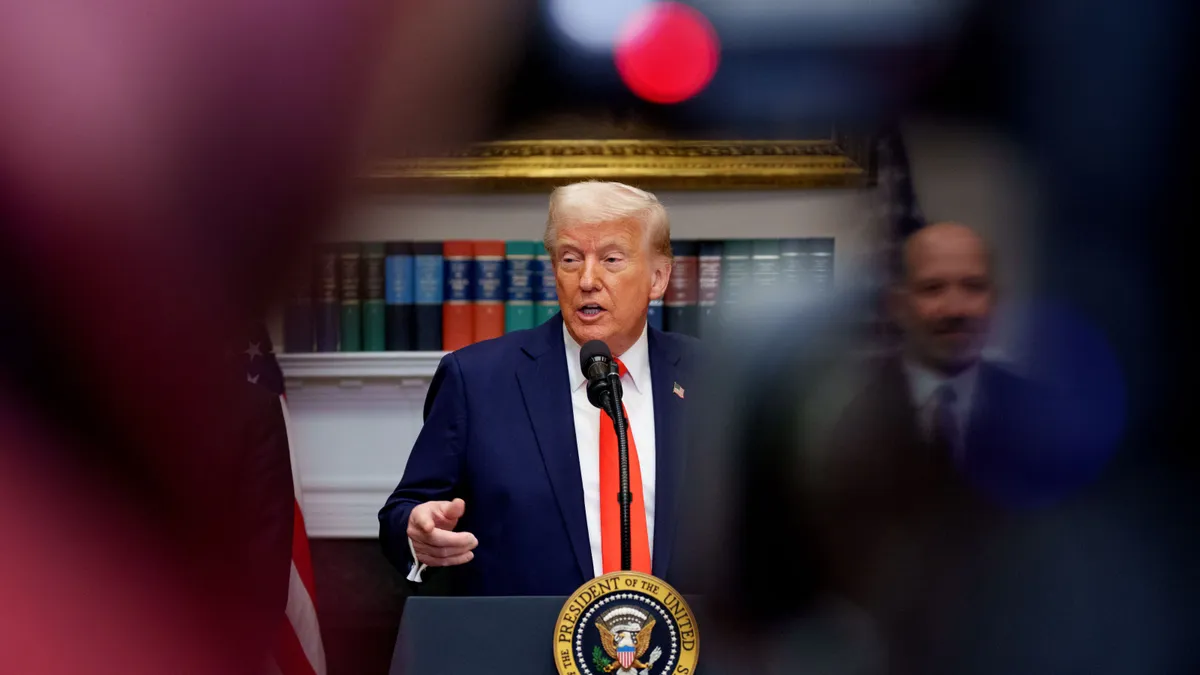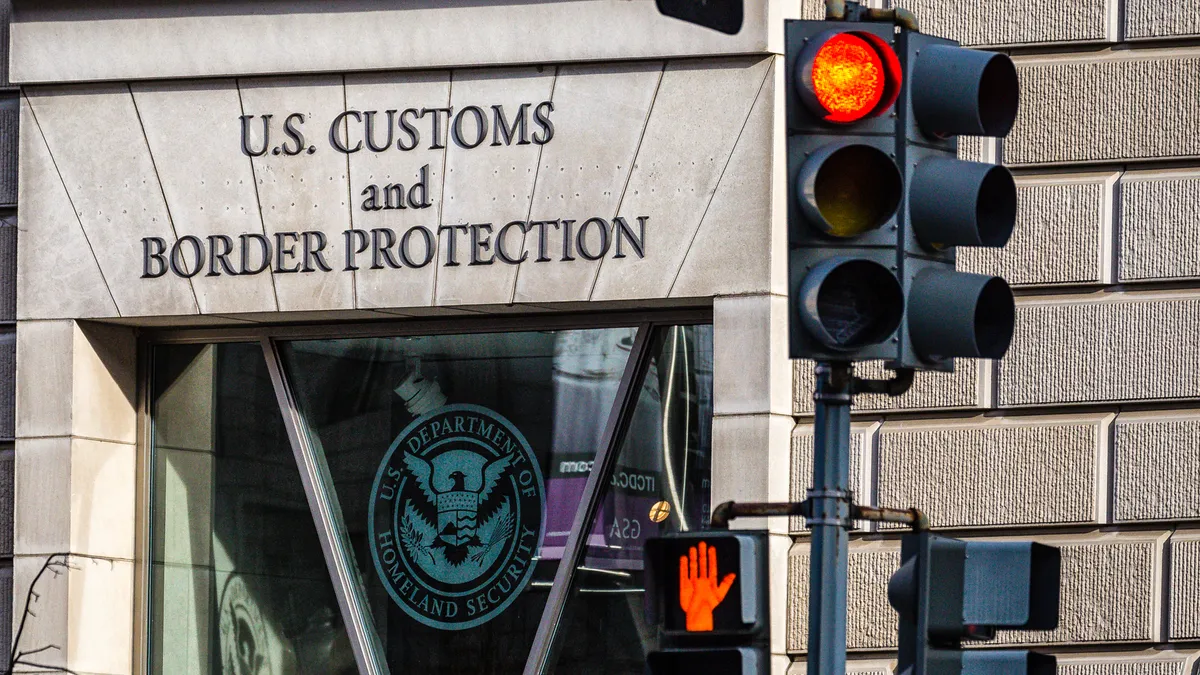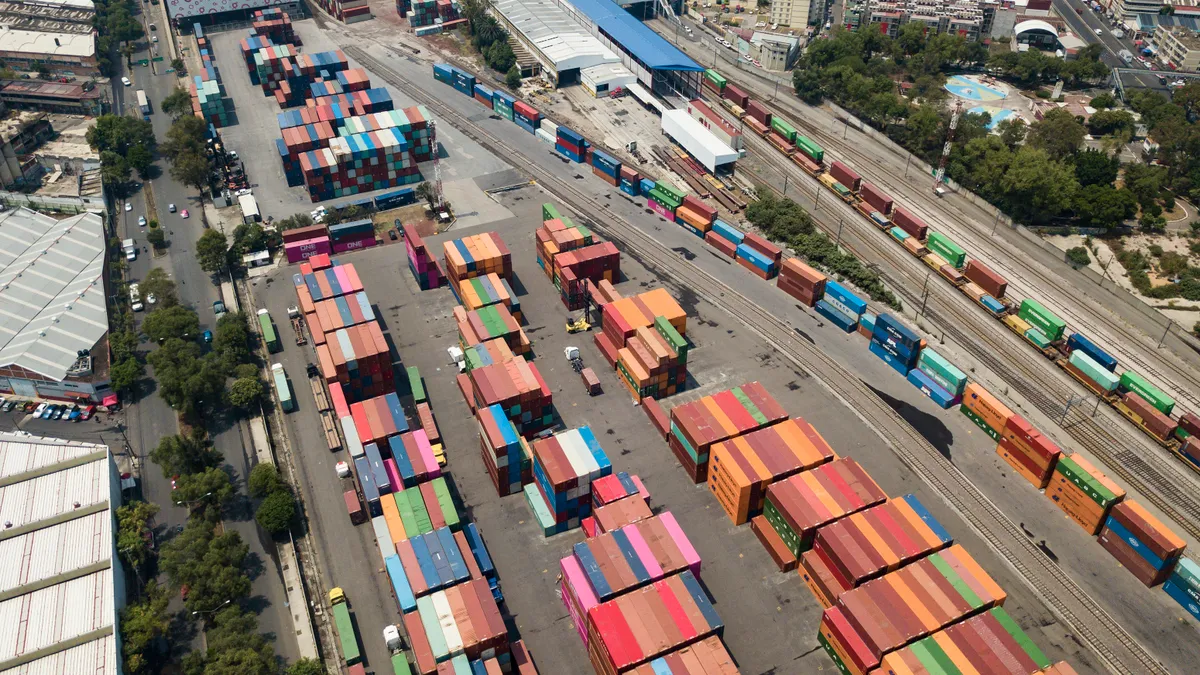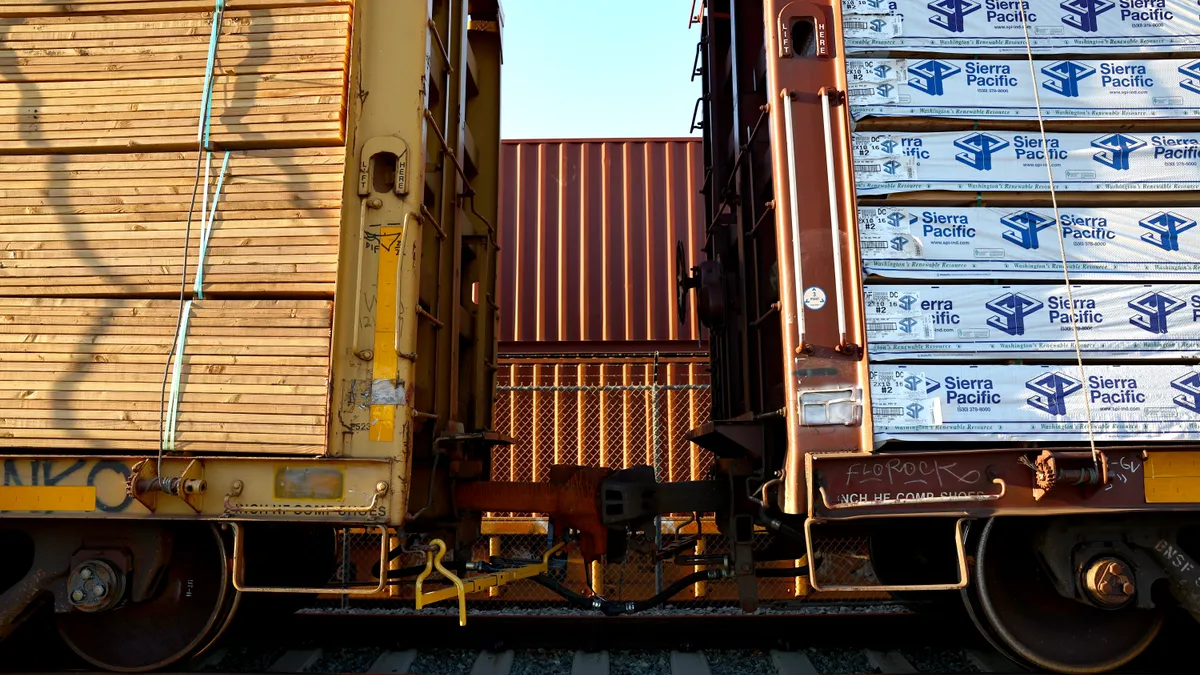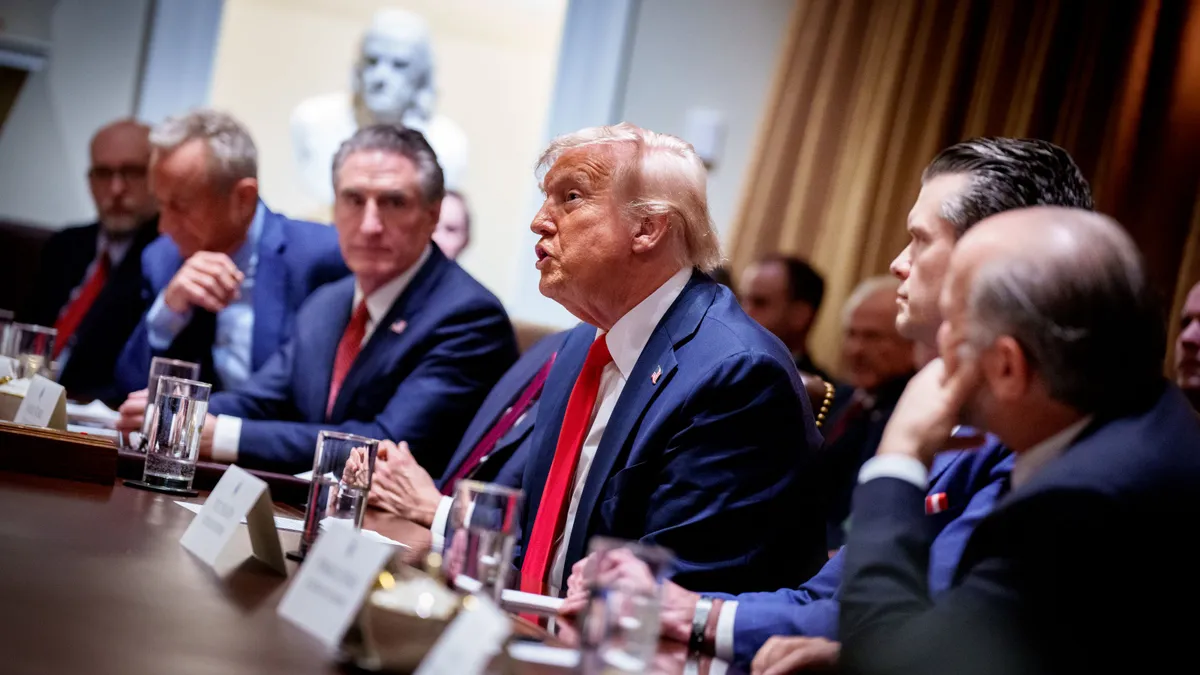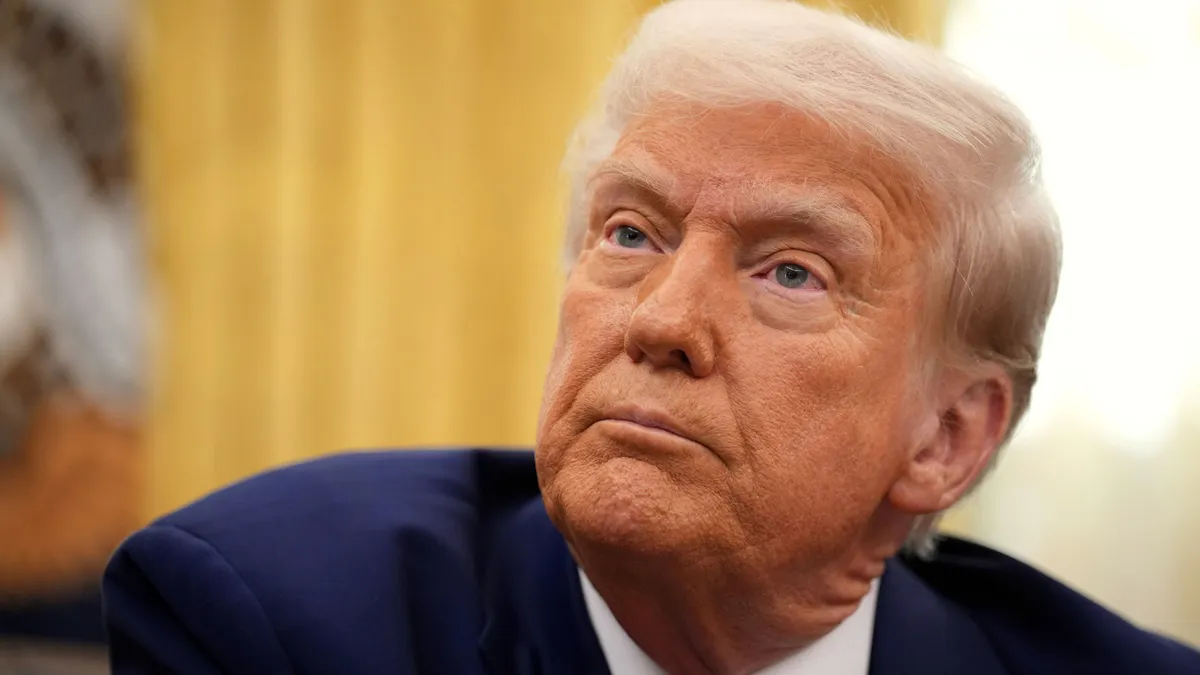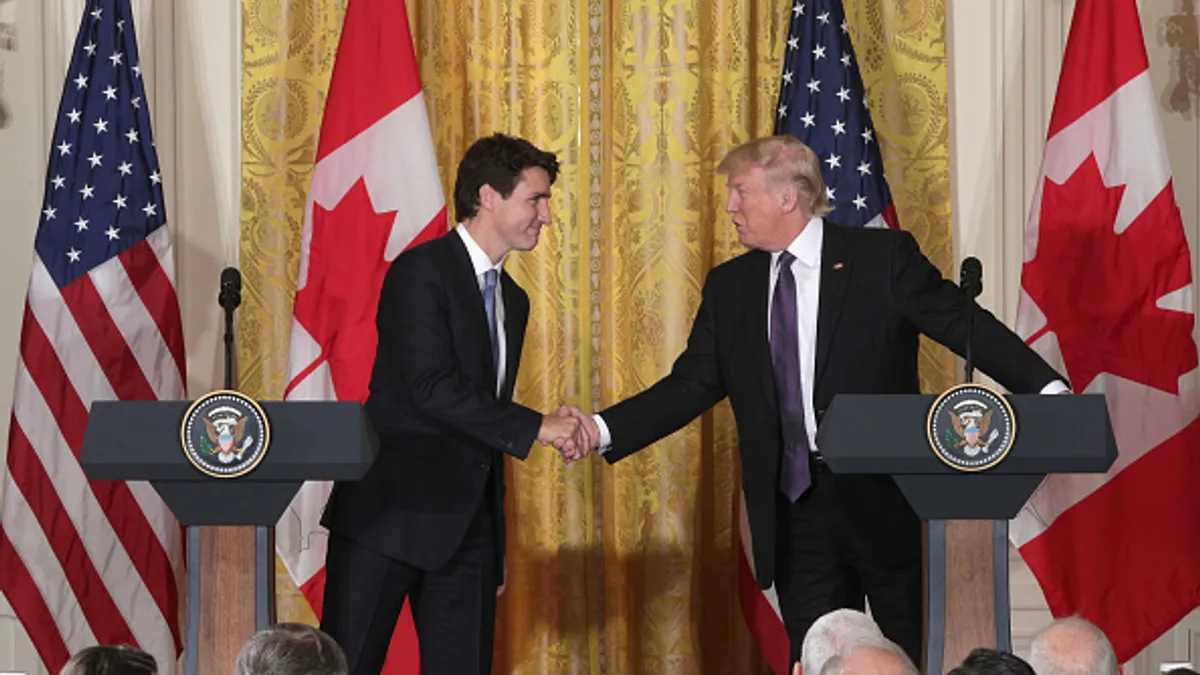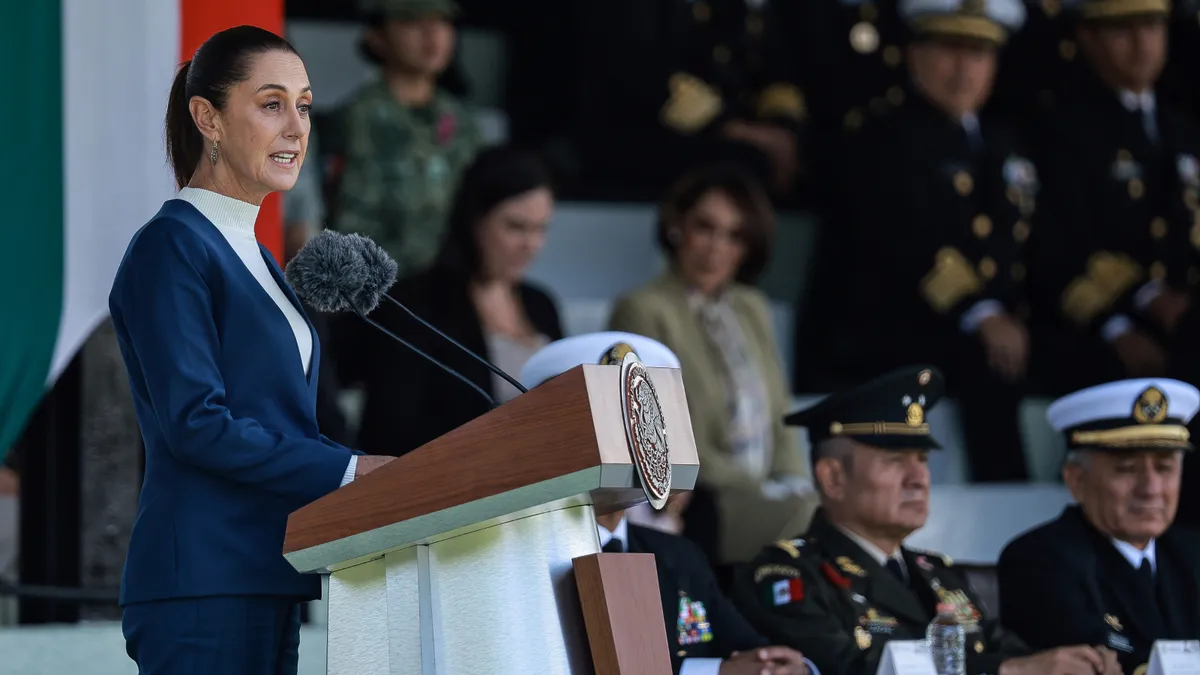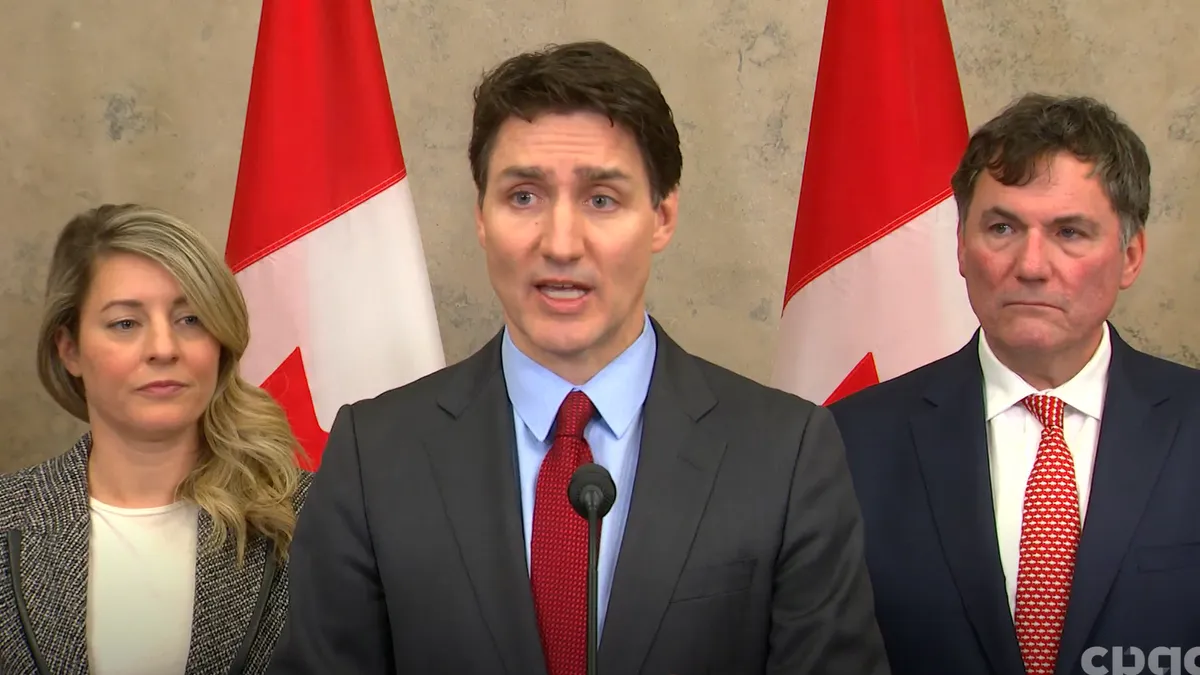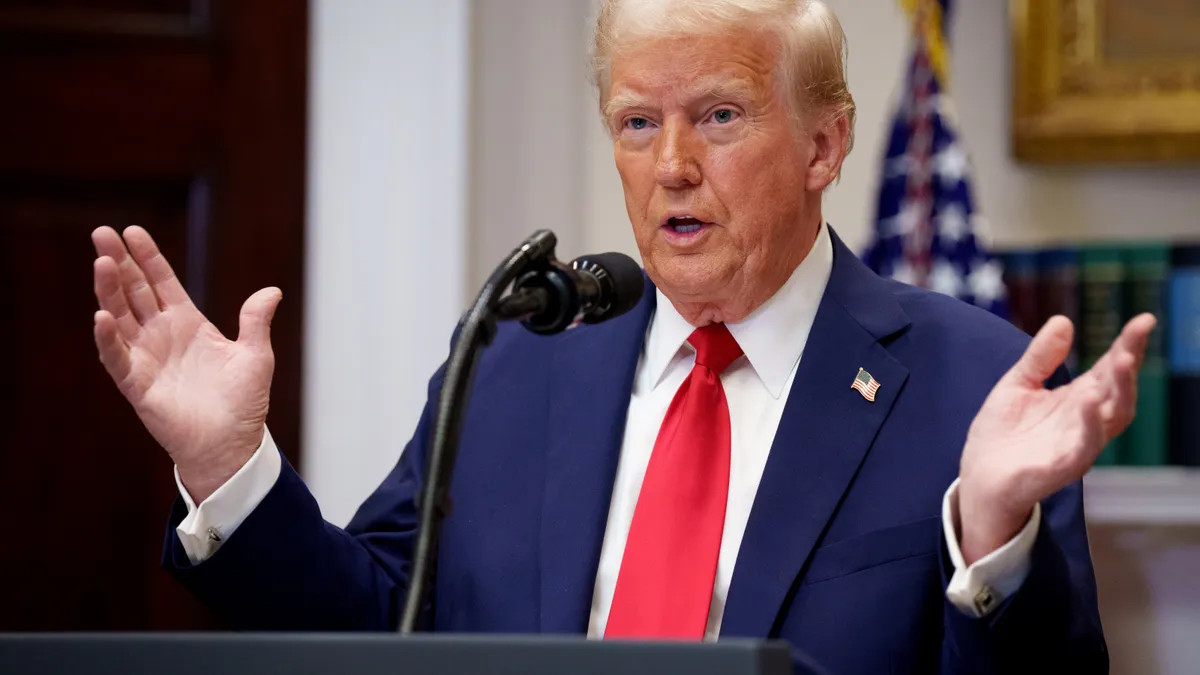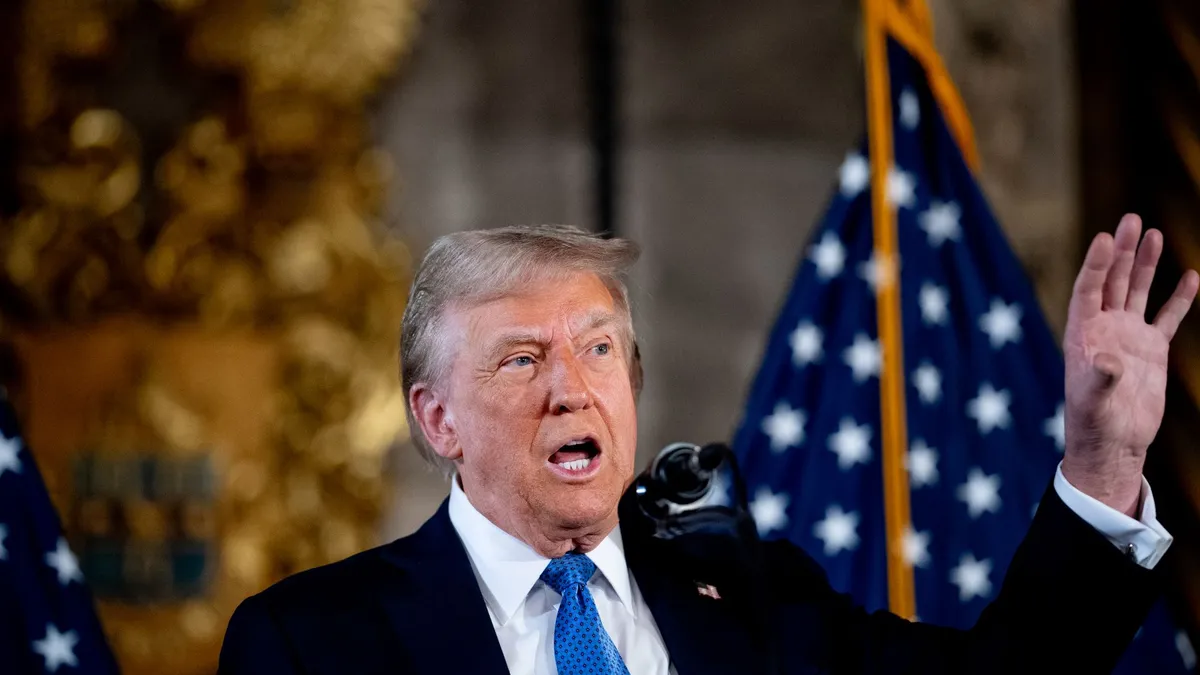The U.S. will levy sector-specific tariffs on a slew of new goods starting Oct. 1, President Donald Trump said Thursday evening.
In separate Truth Social posts, Trump announced that he would install a 100% tariff on branded or patented pharmaceutical products and a 25% tariff on “‘Heavy (Big!) Trucks.’” In a third post, he outlined plans to impose a 50% tariff on kitchen cabinets, bathroom vanities and associated products, and a 30% tariff on upholstered furniture.
In April, the Commerce Department initiated a Section 232 investigation into the pharmaceutical and trucking sectors. Trump also said in August that his administration had begun a “Tariff investigation” into furniture imports, with plans to levy duties within 50 days.
Although Trump did not mention the prior probes on Thursday, he did cite national security as a rationale for the truck and furniture tariffs. Section 232 reviews focus on evaluating the national security implications of imported goods.
The president has threatened tariffs on pharmaceutical imports several times since returning to the White House, saying in August that they could reach as high as 250%. At the time, he said he would begin with “a small tariff” before ratcheting up the rate over the next year and a half. It remains unclear if that is the planned cadence of the administration.
The announcement comes the same month the Trump administration expanded its list of sectors under Section 232 scrutiny. On Sept. 2, the Commerce Department launched an investigation into personal protective equipment, medical equipment and devices imports, while also opening a similar review of robotics and industrial machinery.
The Trump administration has instituted several duties using Section 232, including those on steel and aluminum, as well as cars and auto parts. Meanwhile, the Commerce Department is still investigating goods such as semiconductors, which could be precursors to additional tariffs.
Certain sector-specific tariffs have been adjusted under tariff deals and framework agreements the U.S. has struck with trading partners such as the European Union and Japan. However, Trump did not provide details about how these new tariffs might impact those agreements.


